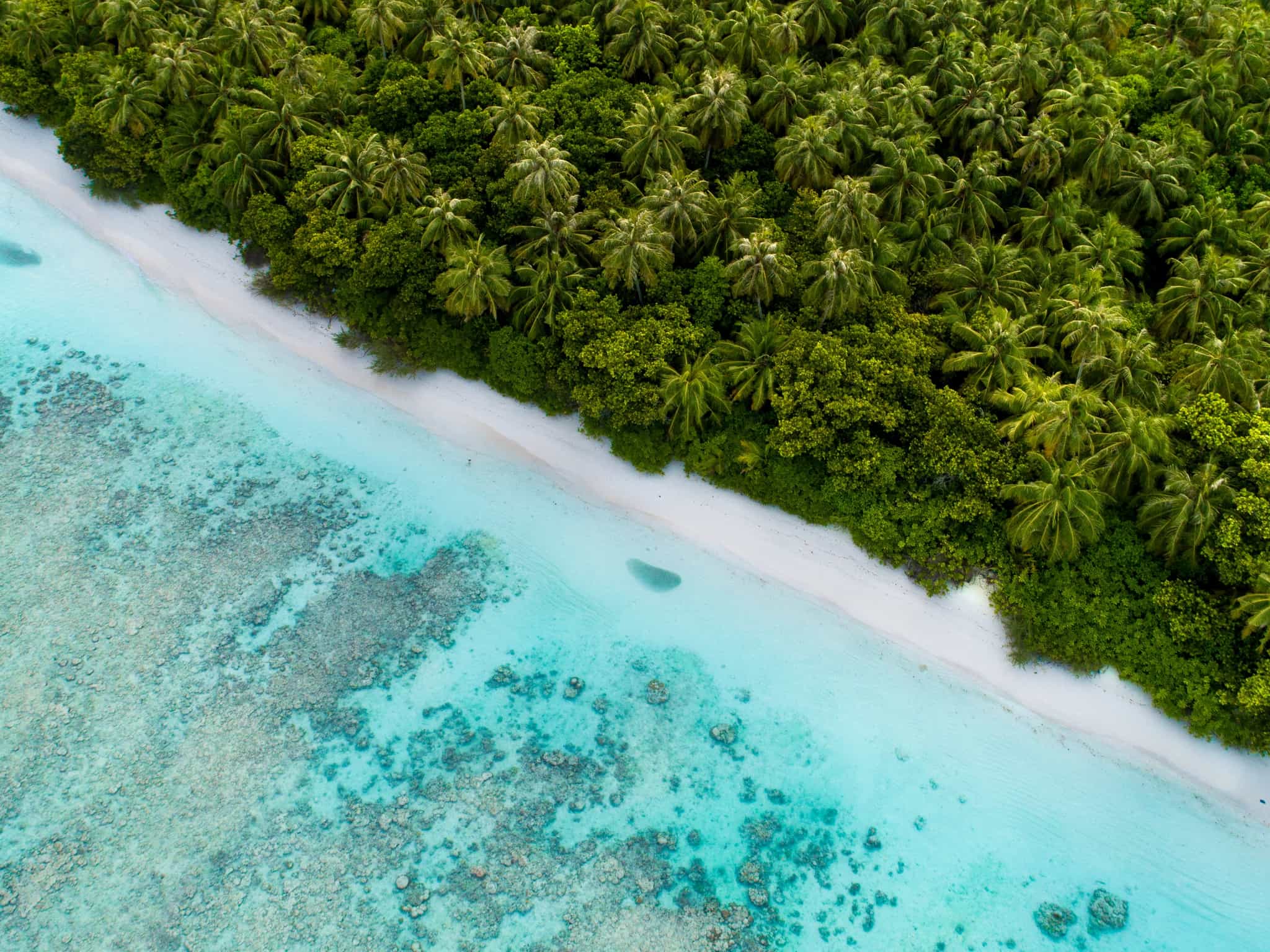
Island Hopping Adventure in the Real Maldives
Relax into authentic island life on this marine adventure in South Ari Atoll, paddling and snorkelling in protected tropical waters
What's Included?
Activities & Certified Guides
All itinerary activities with expert, local, English-speaking guidesHotel & Guesthouse
7 nights in locally owned hotels and guesthousesMeals
All breakfasts, 1 lunch, and 7 dinnersTransfers
Airport transfers and boat transfers between islandsEquipment
All snorkelling, kayaking and SUP equipmentSmall Like-minded Groups
Solo-friendly by design, join our small n’ sociable groups of up to 14 like-minded, active and outdoorsy people…
…
What's it like?
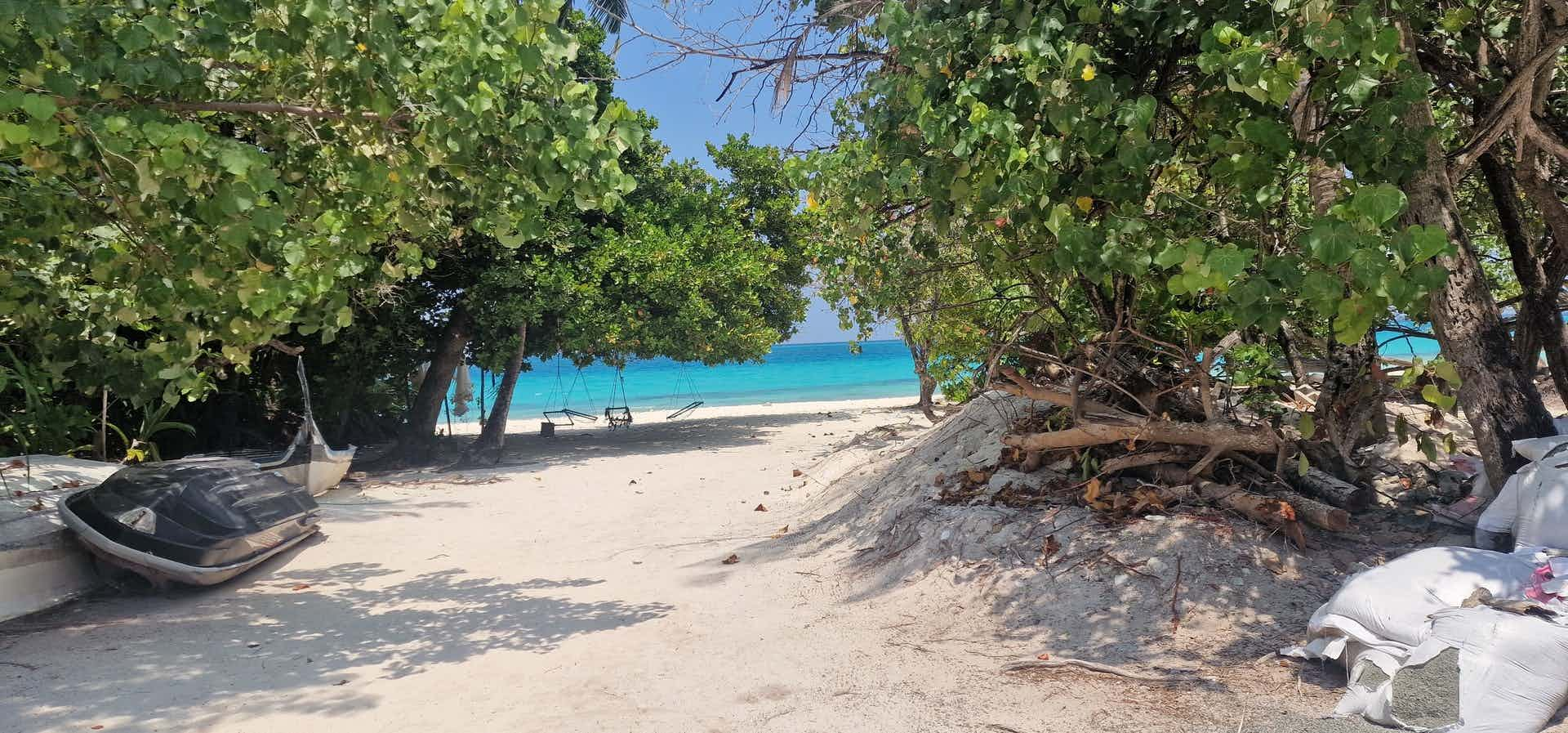
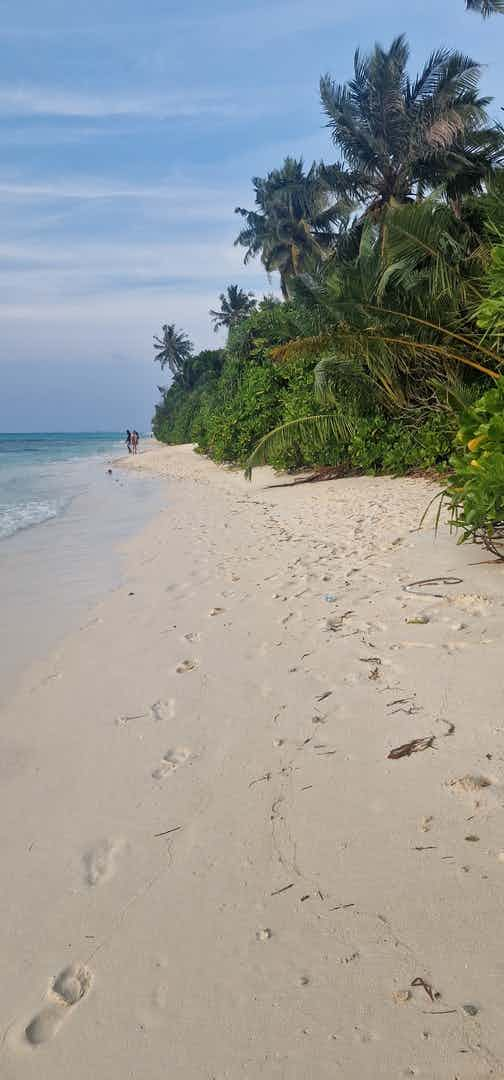
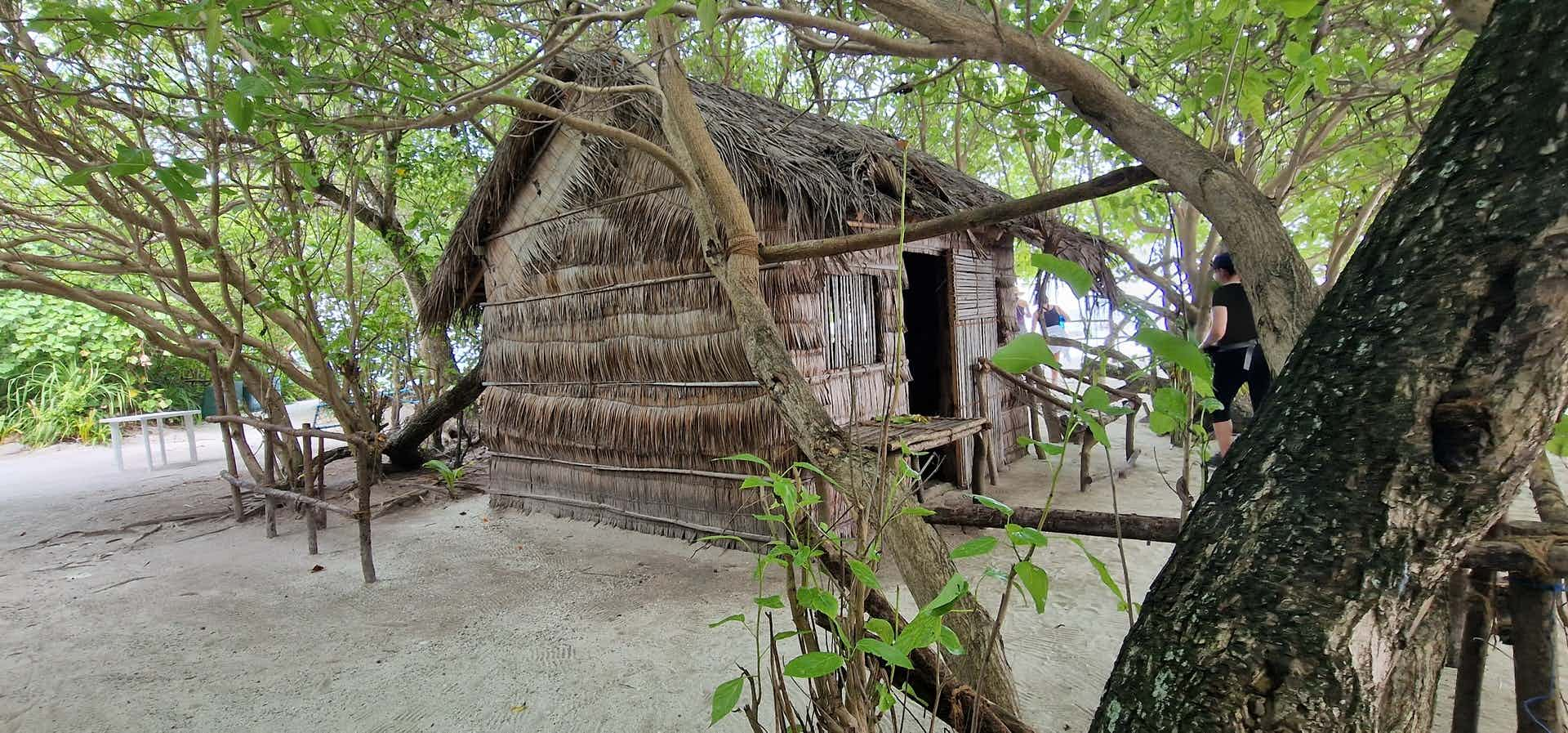
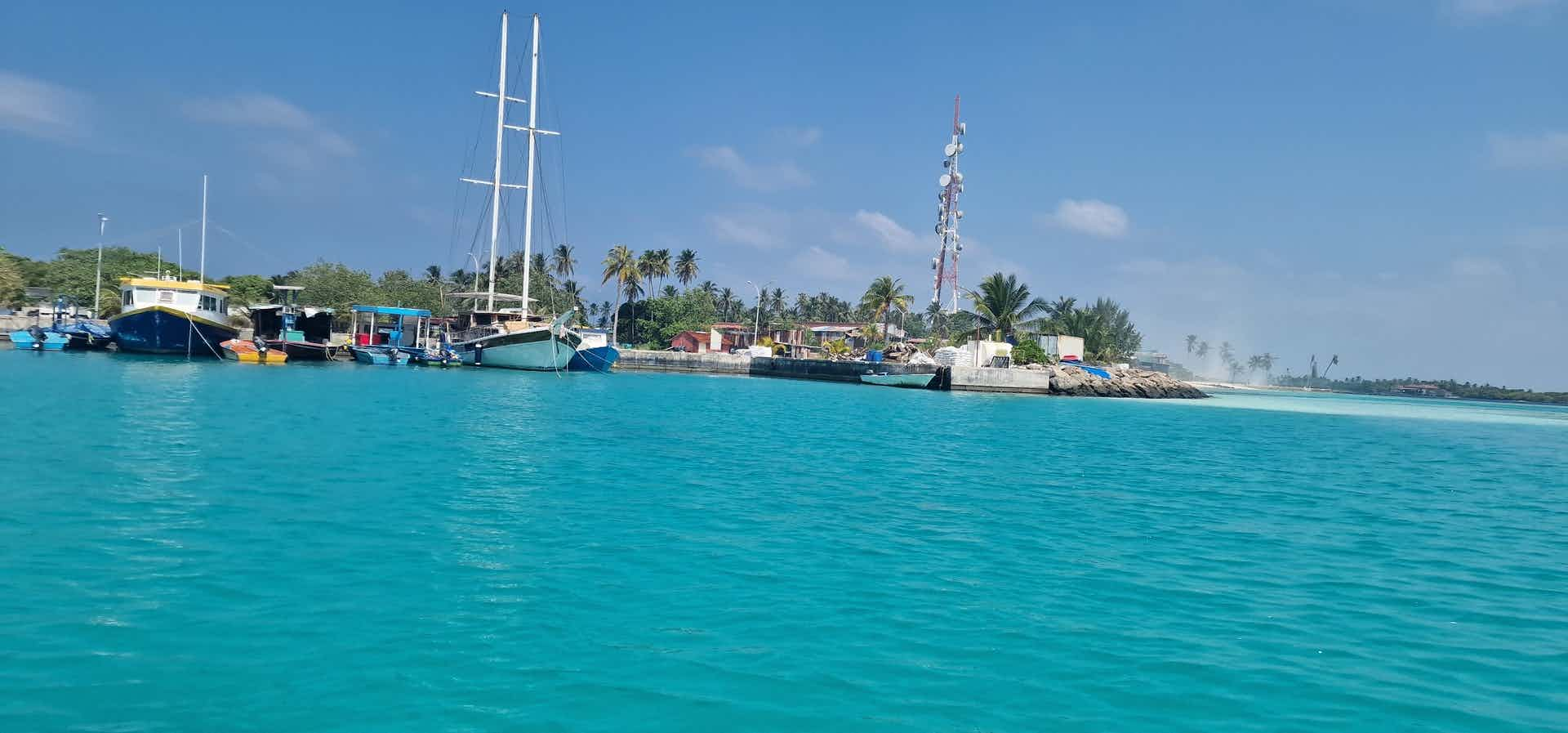
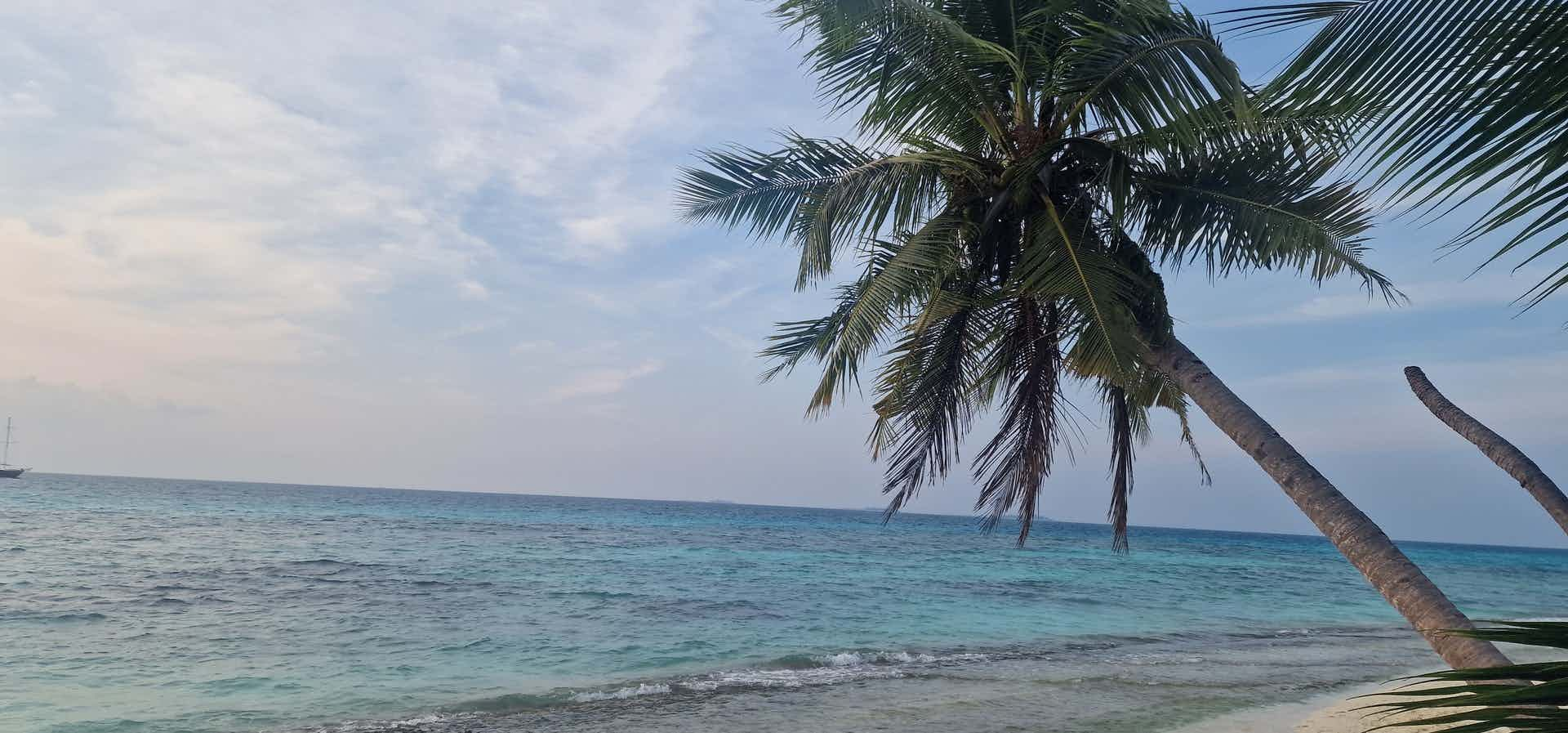
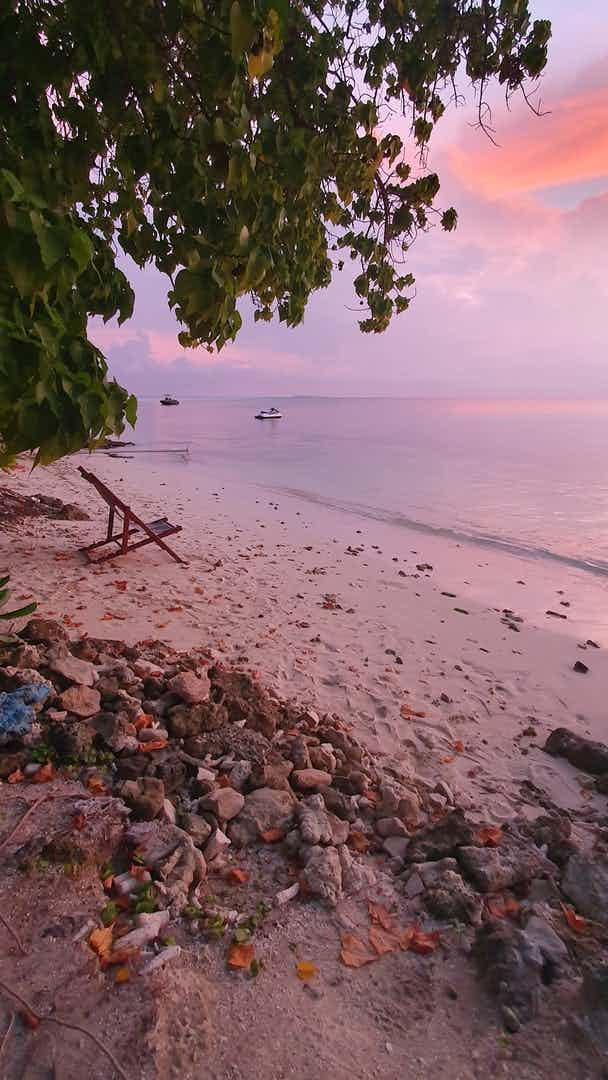
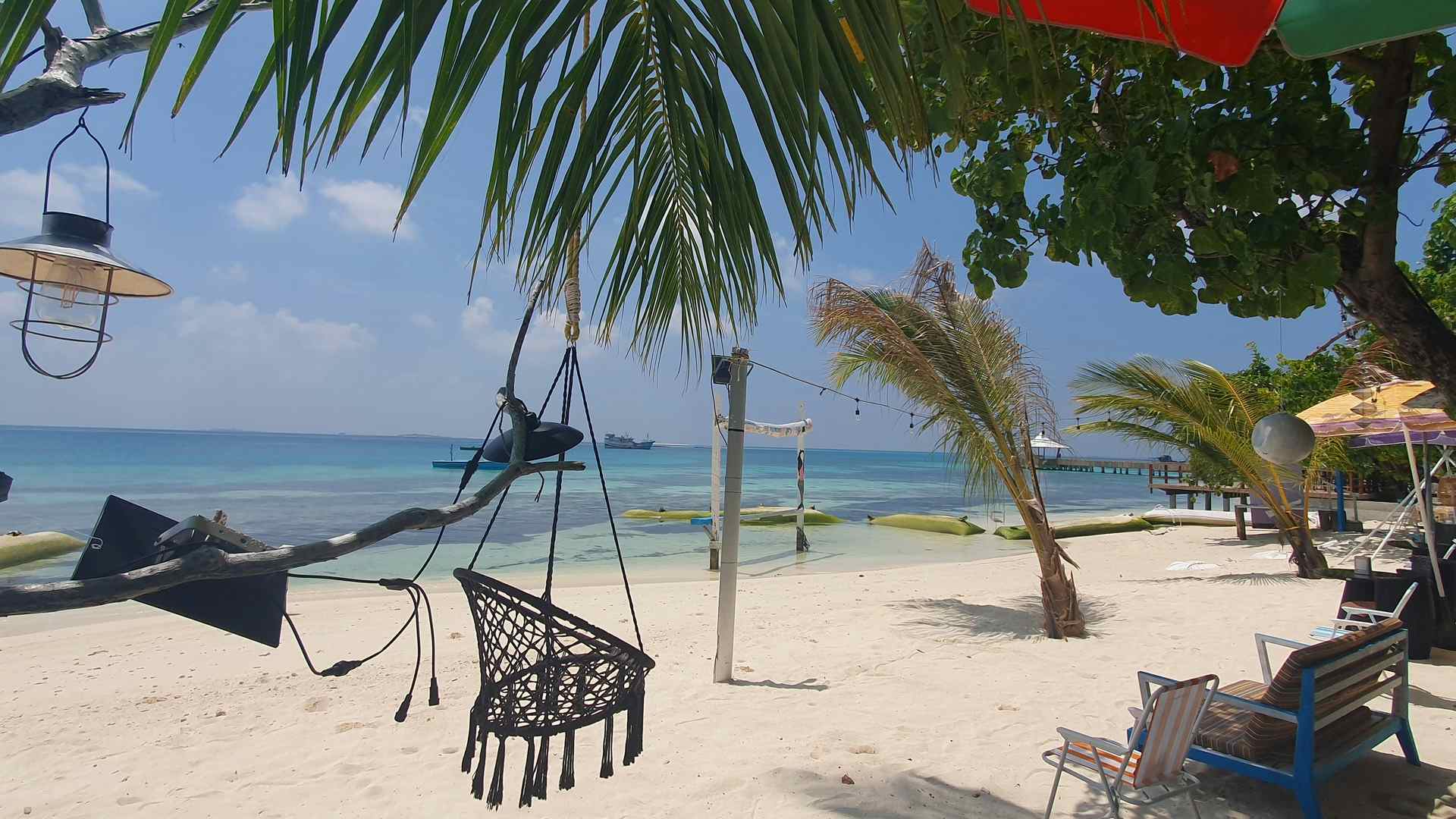
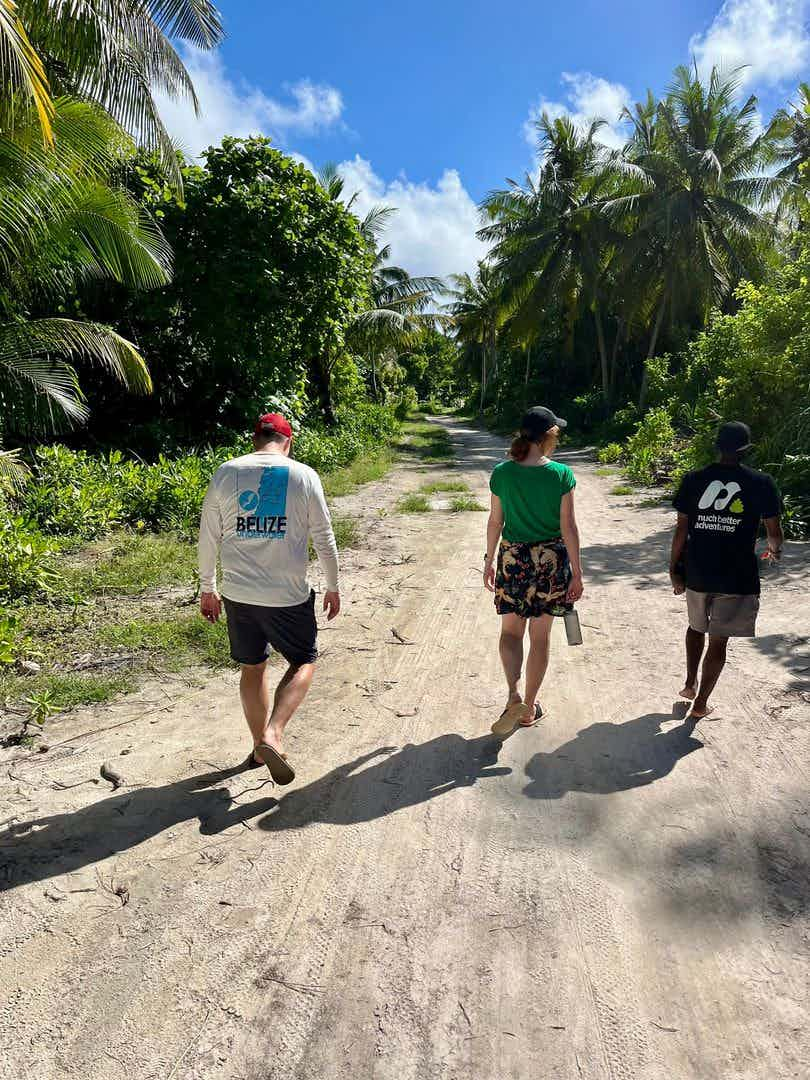
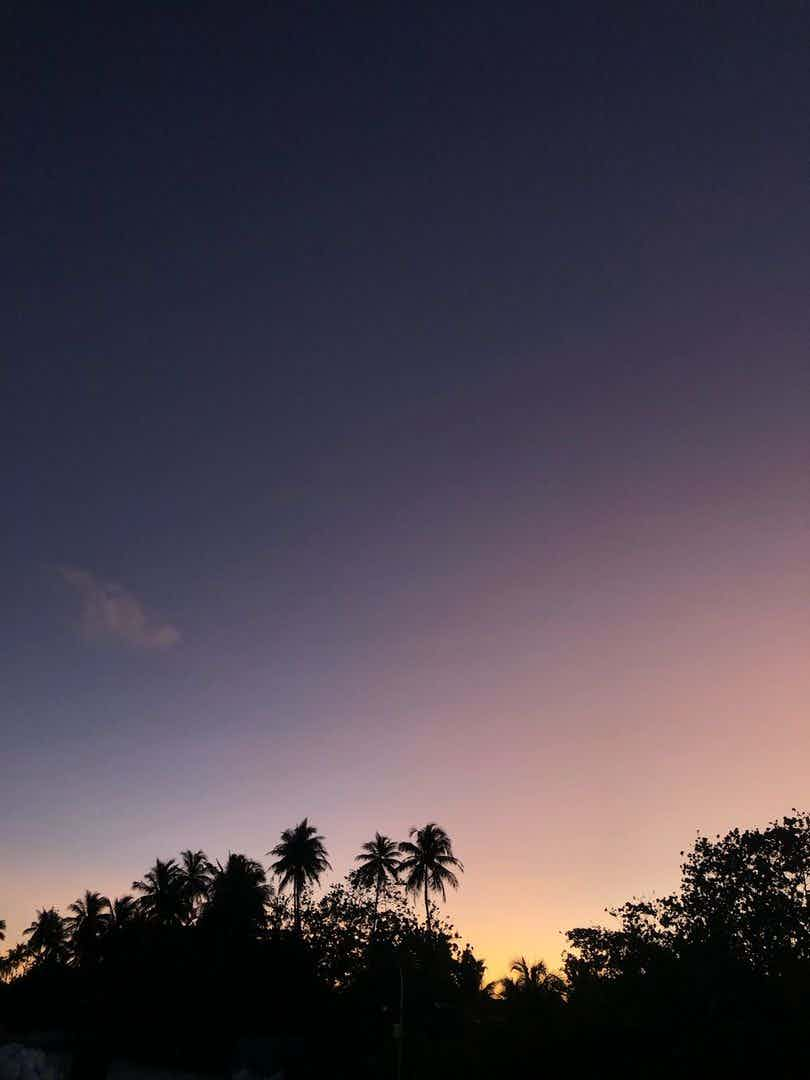
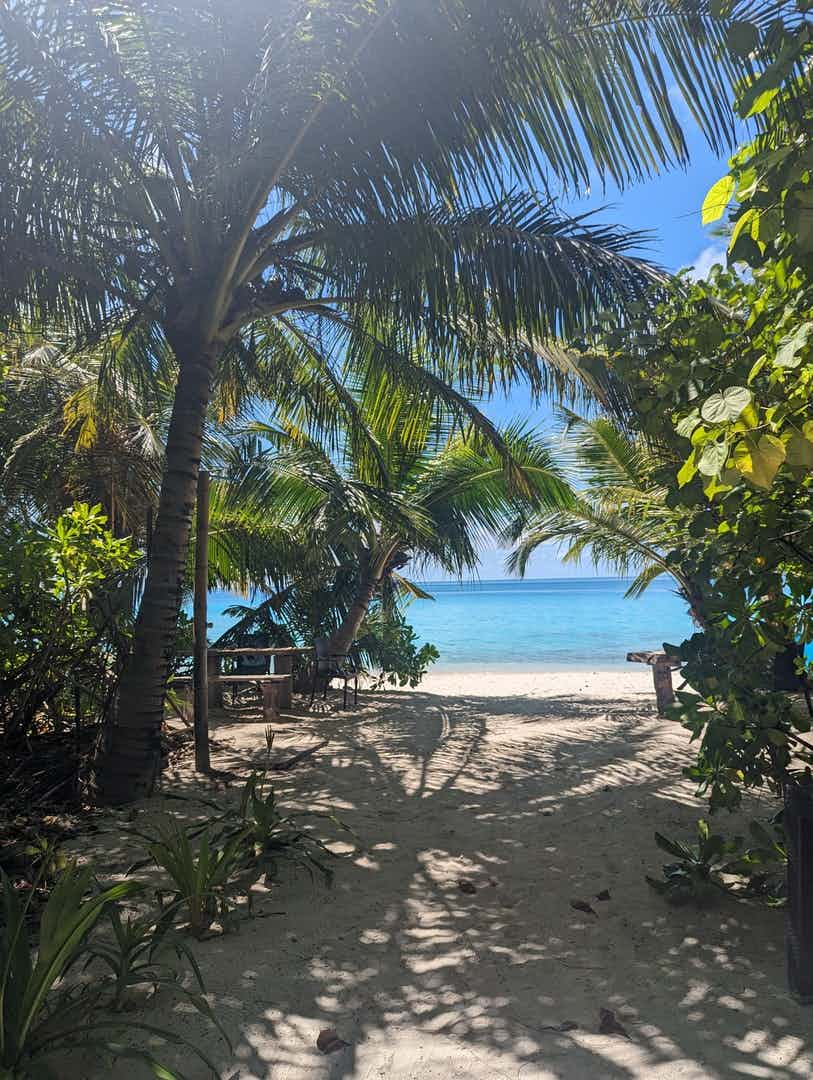
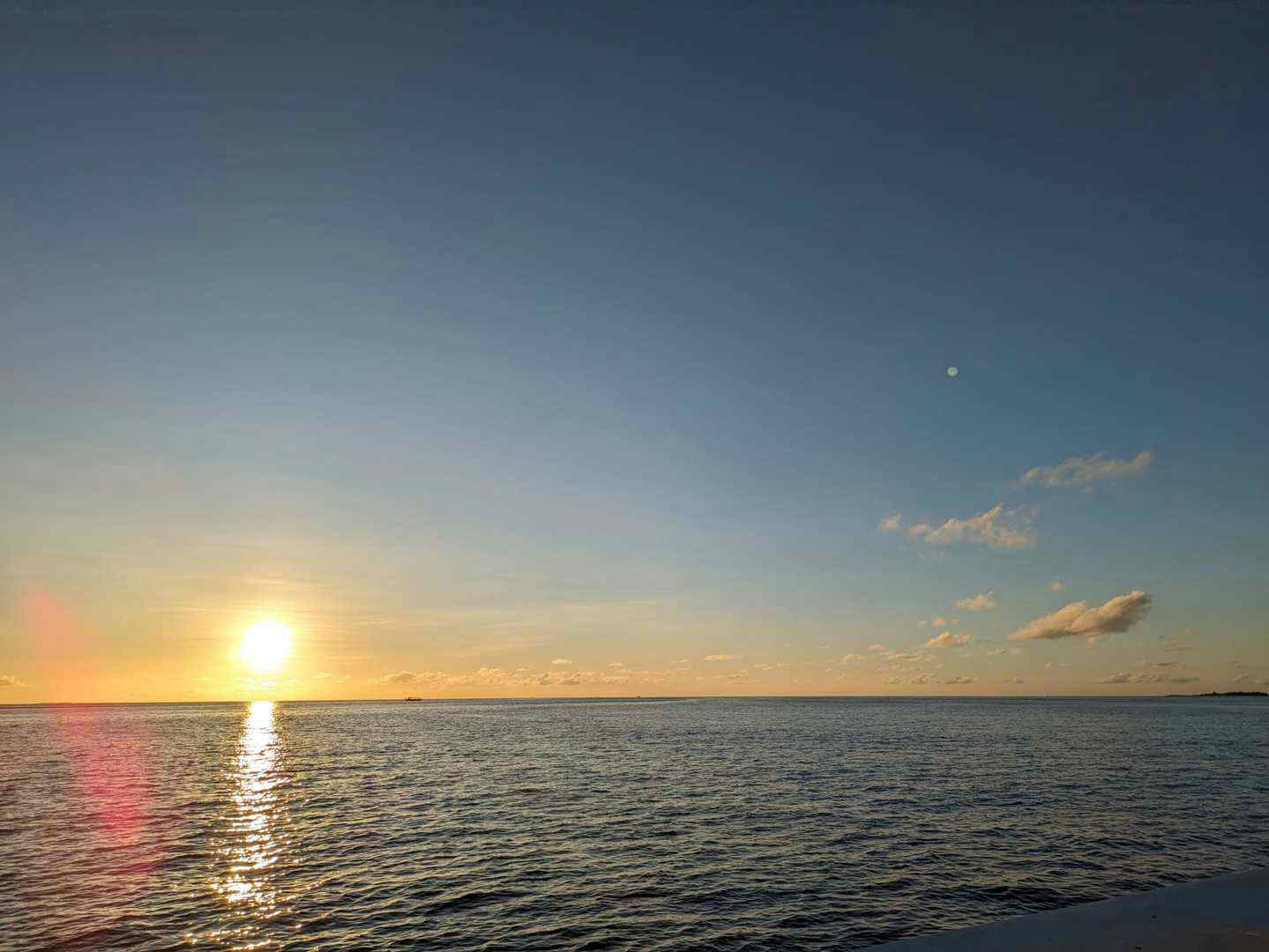
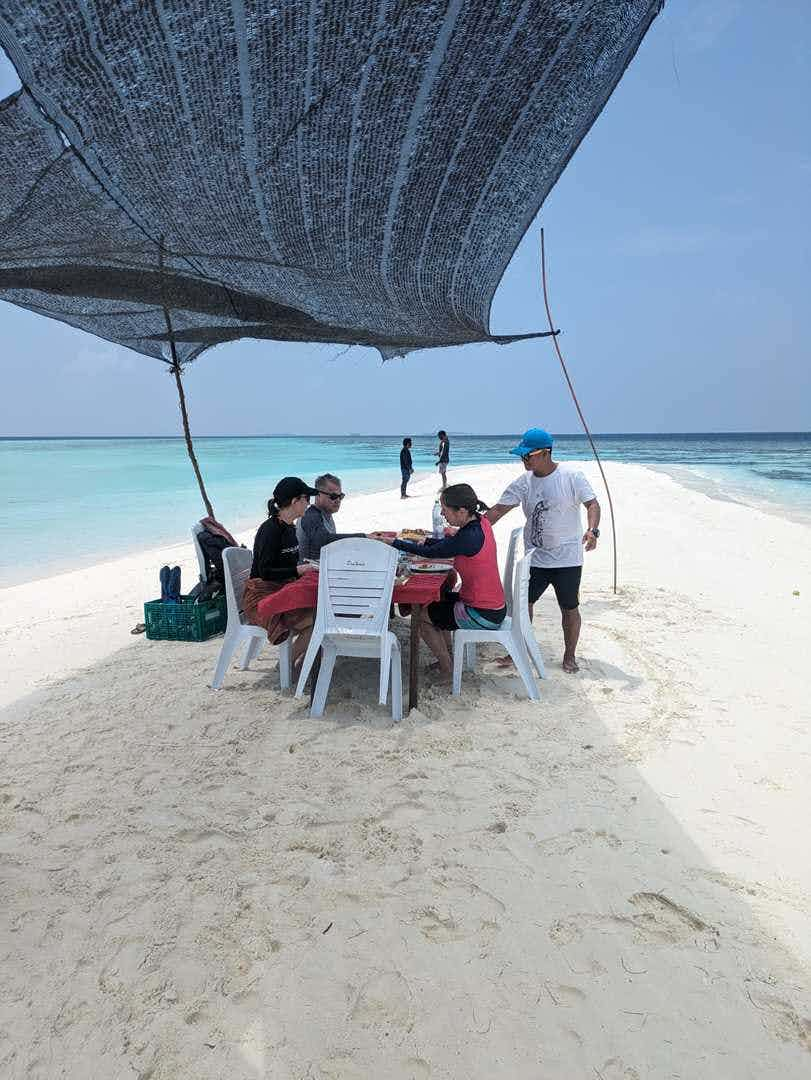
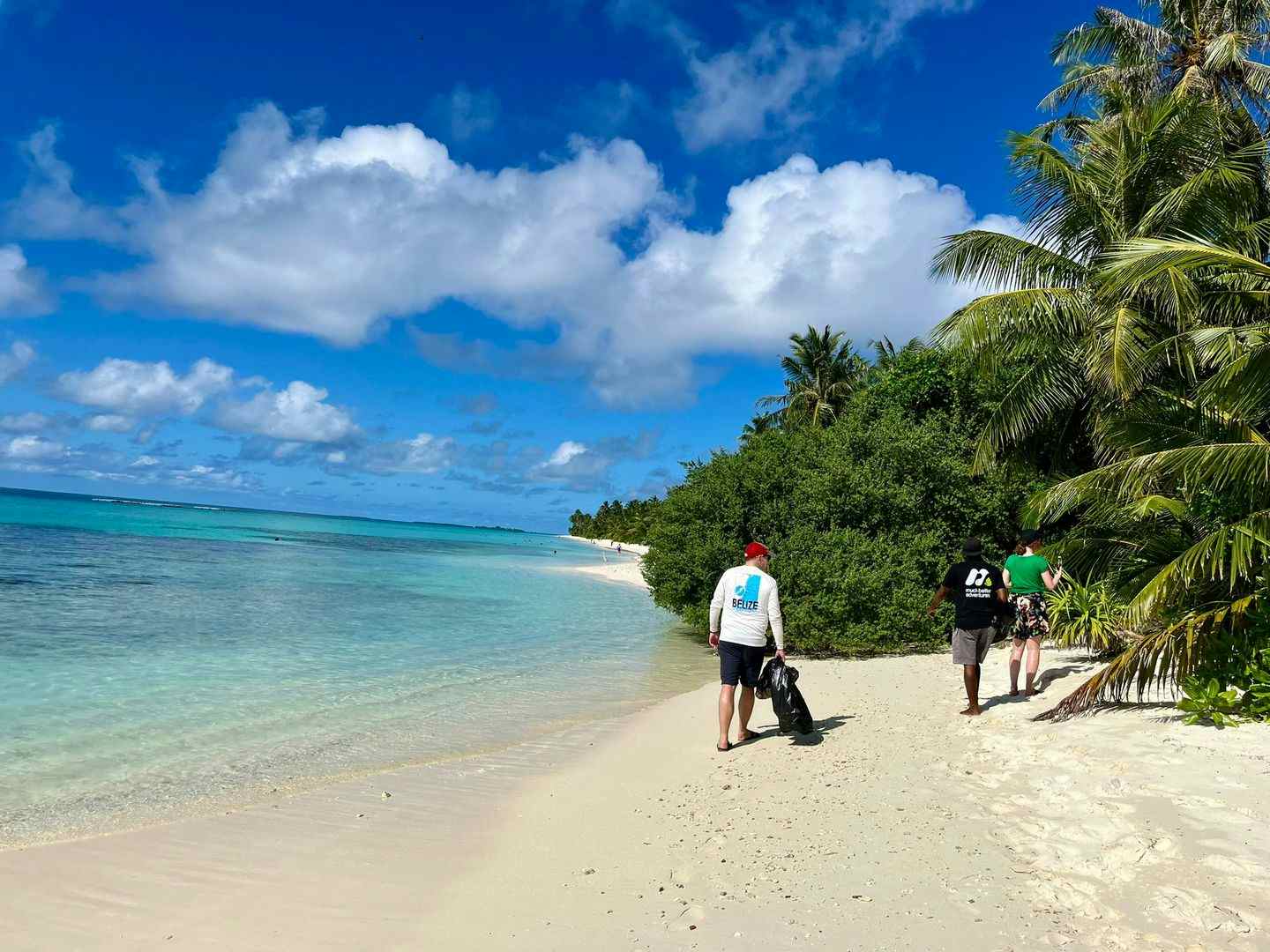
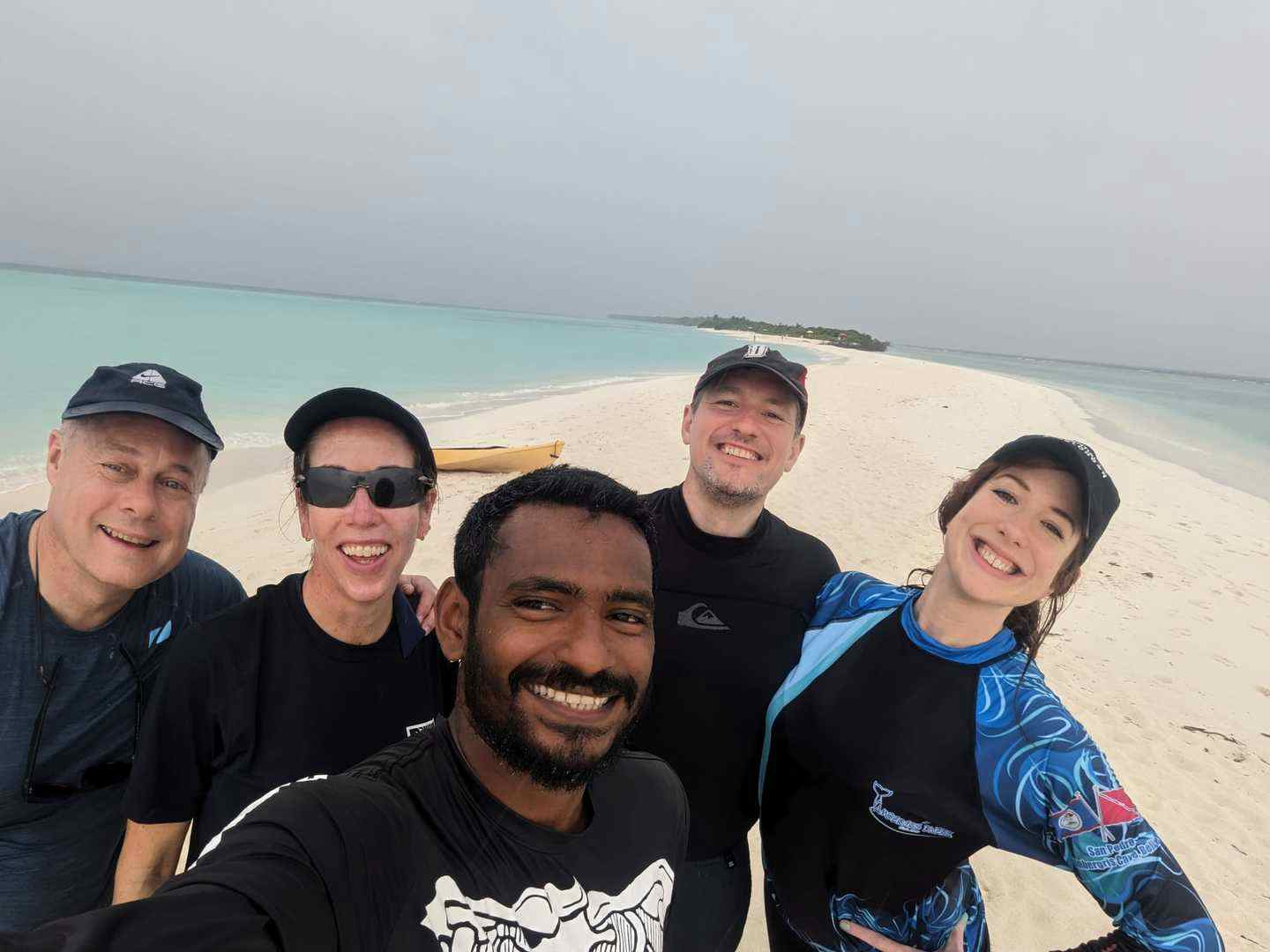
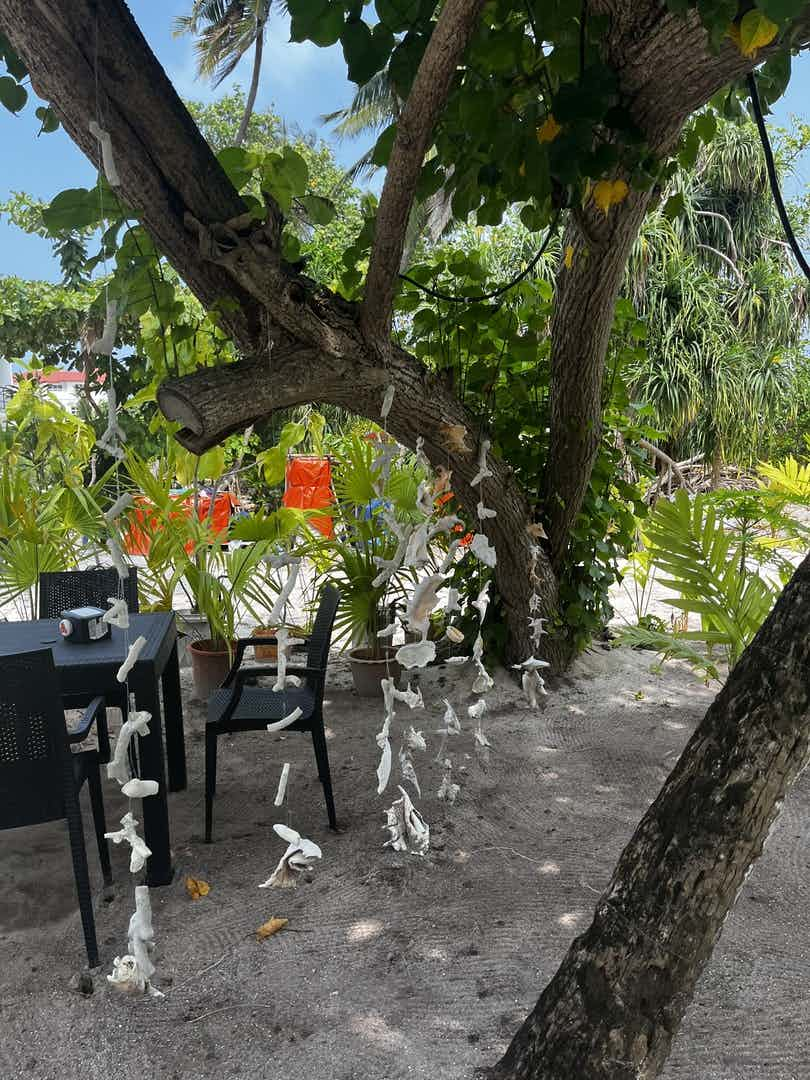
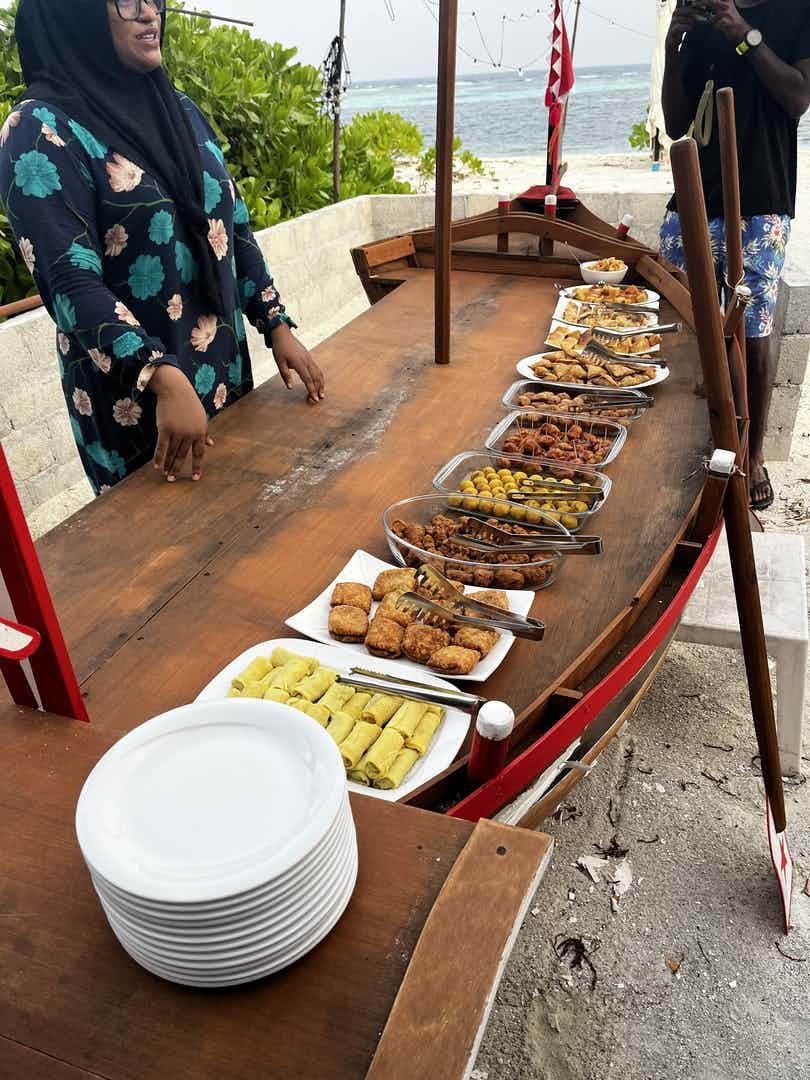
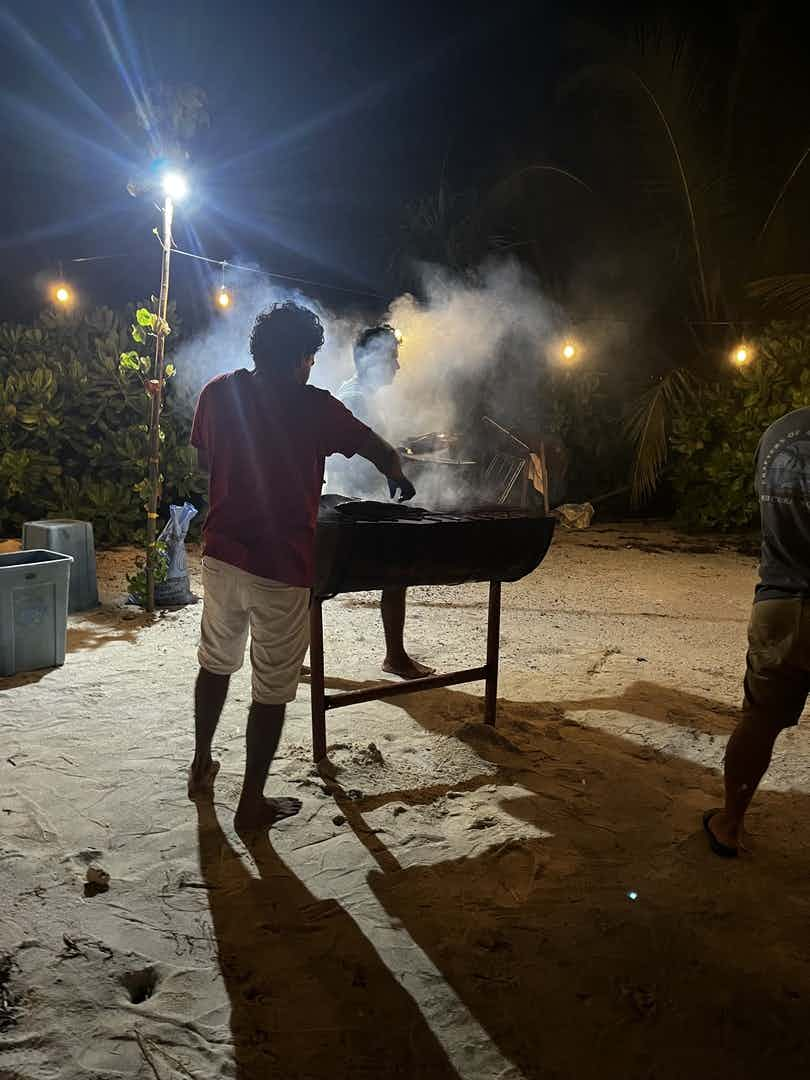
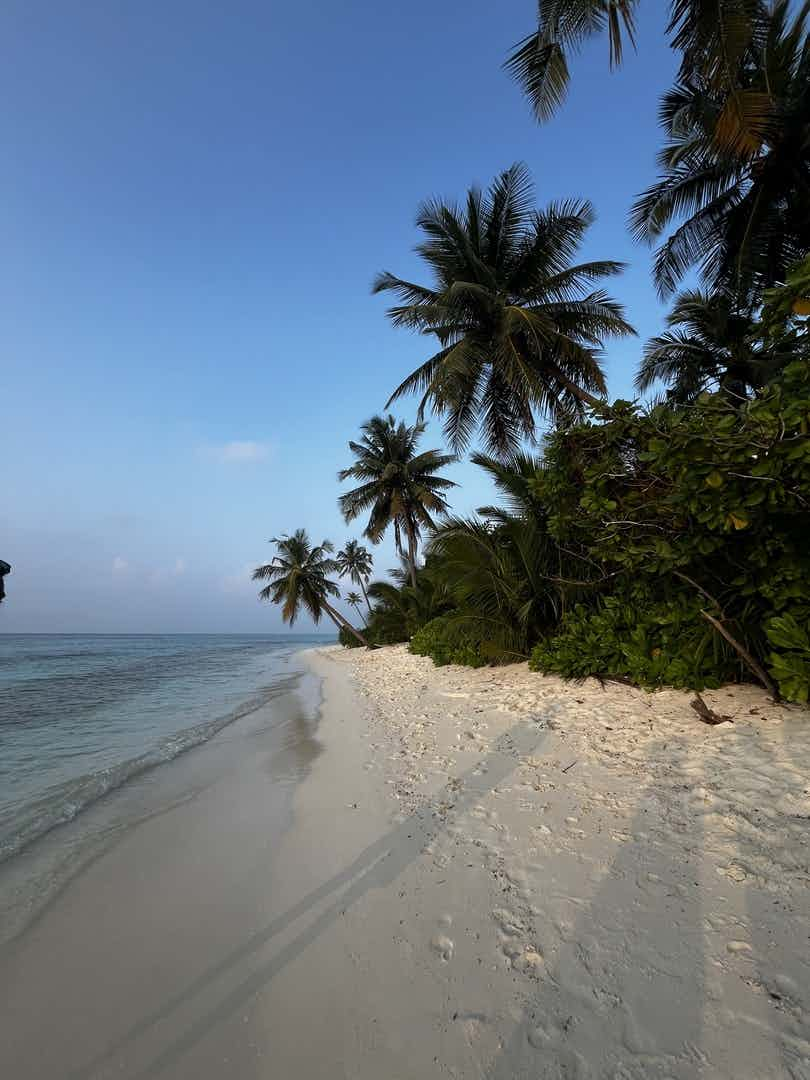
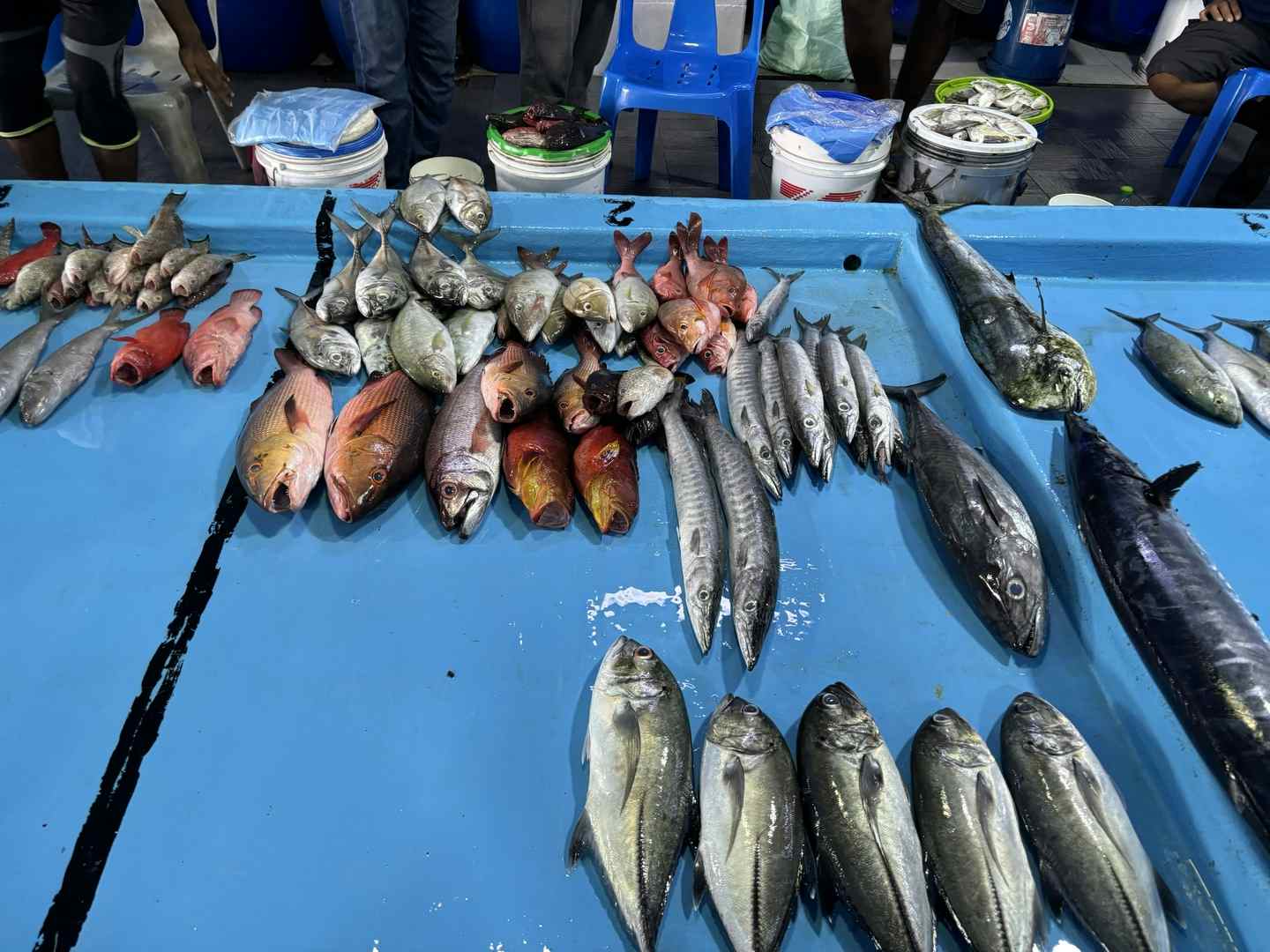
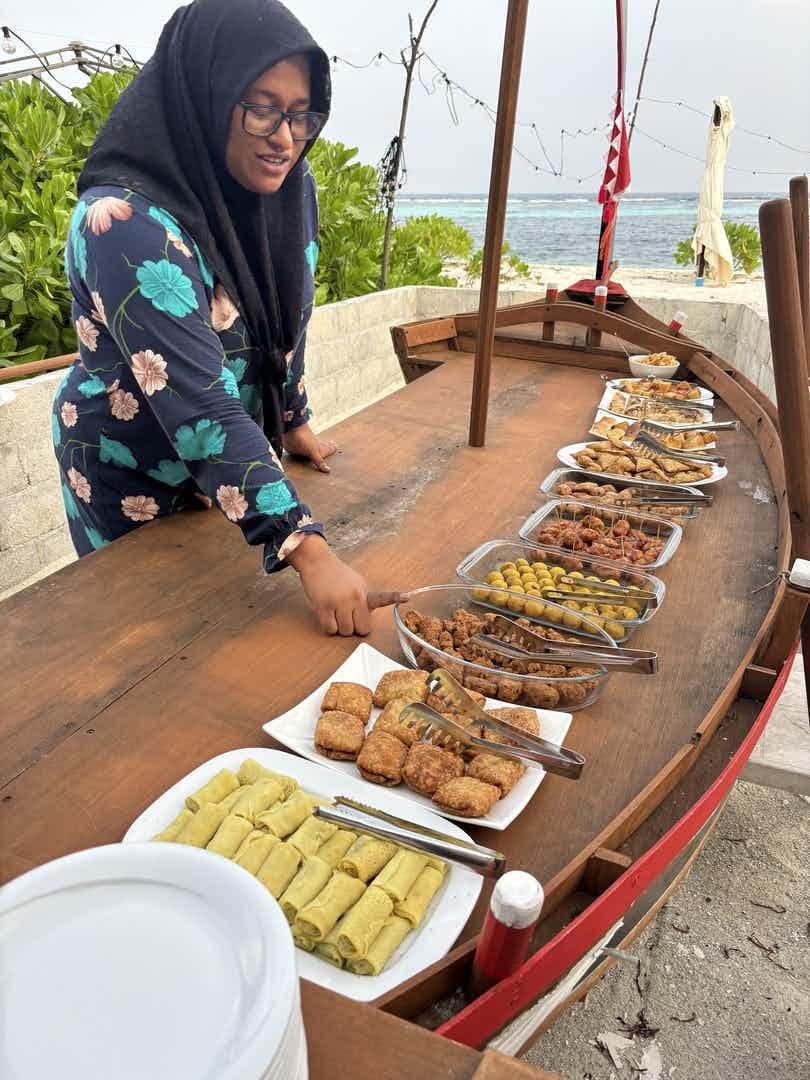
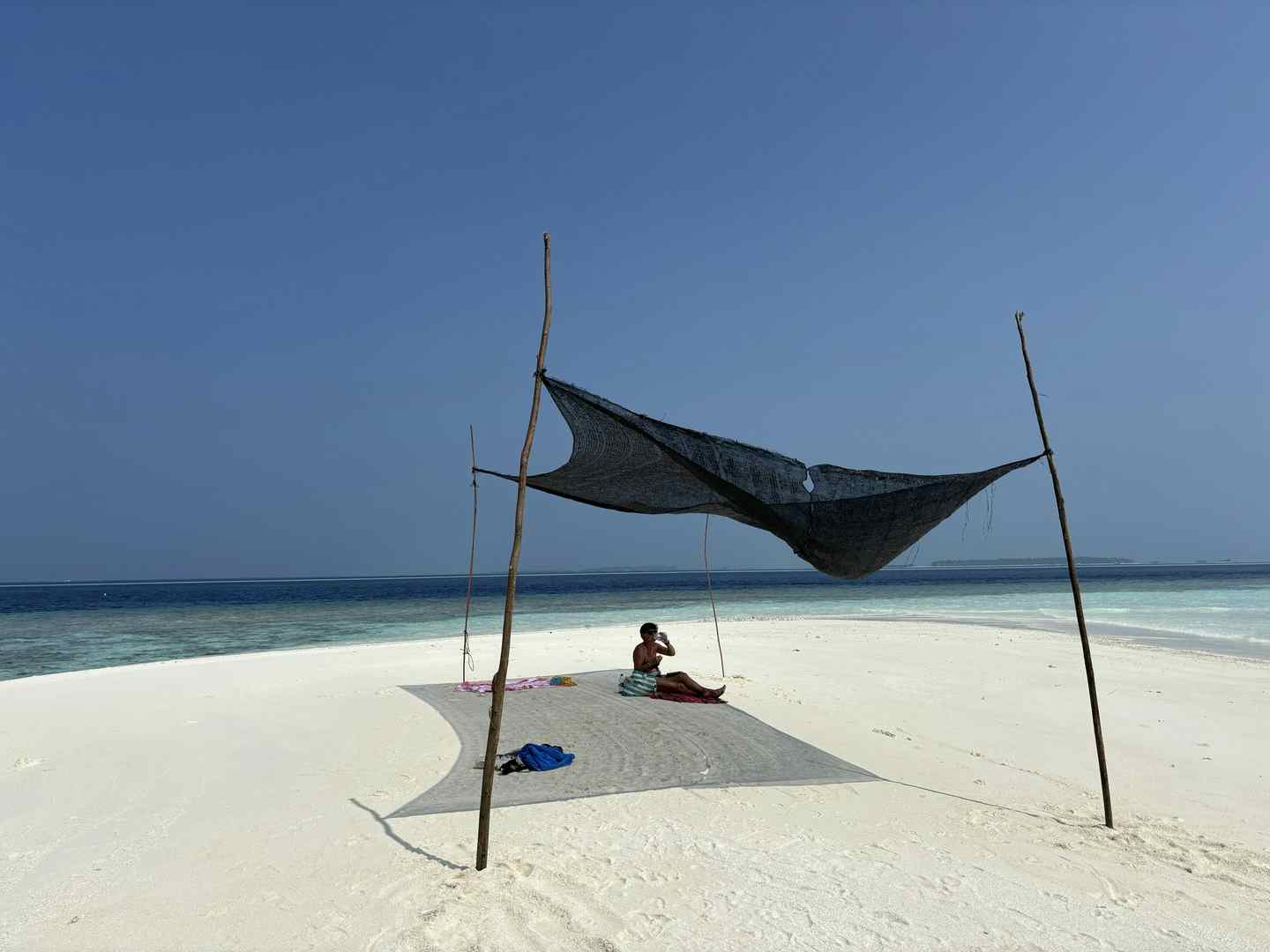
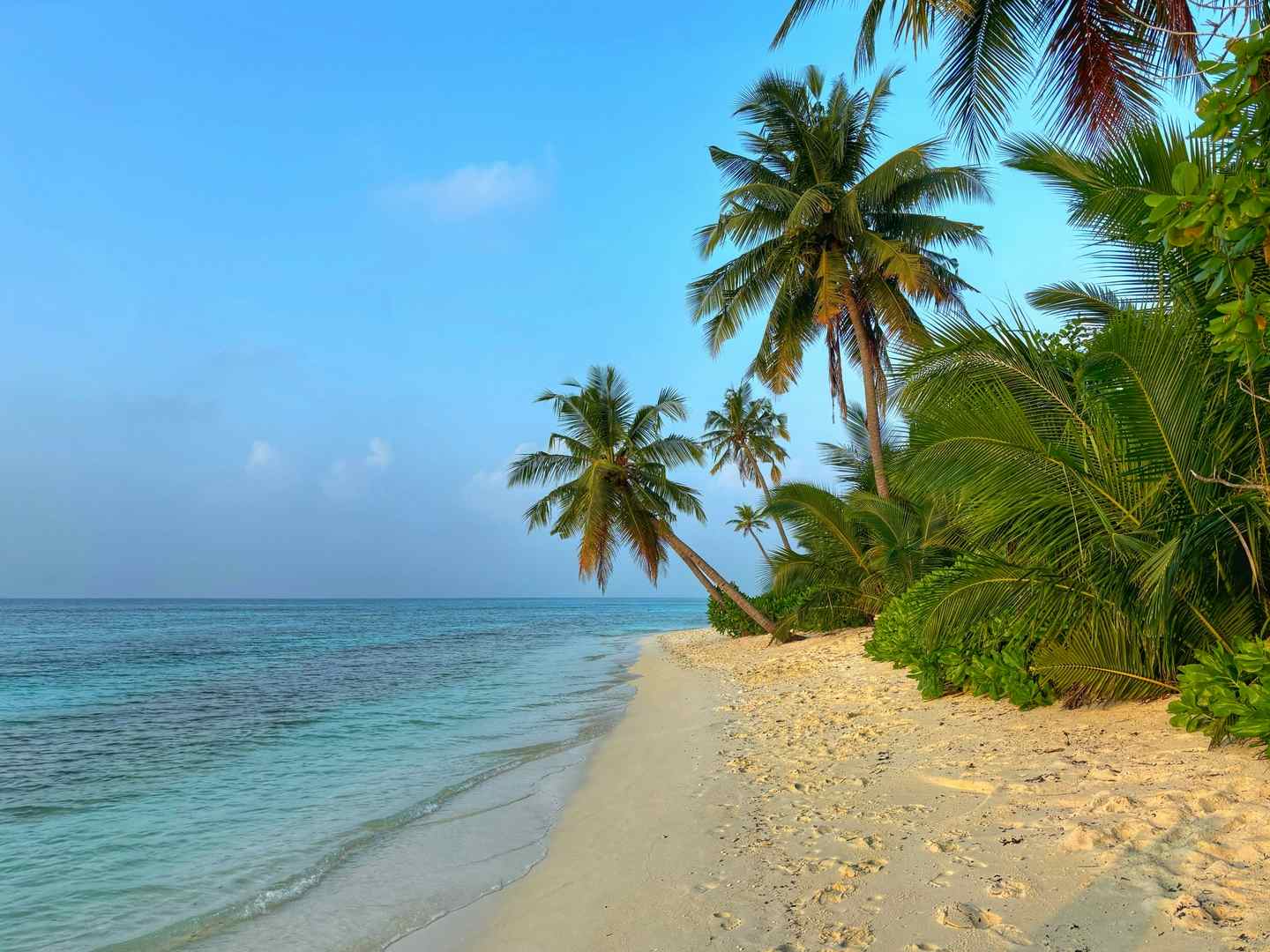
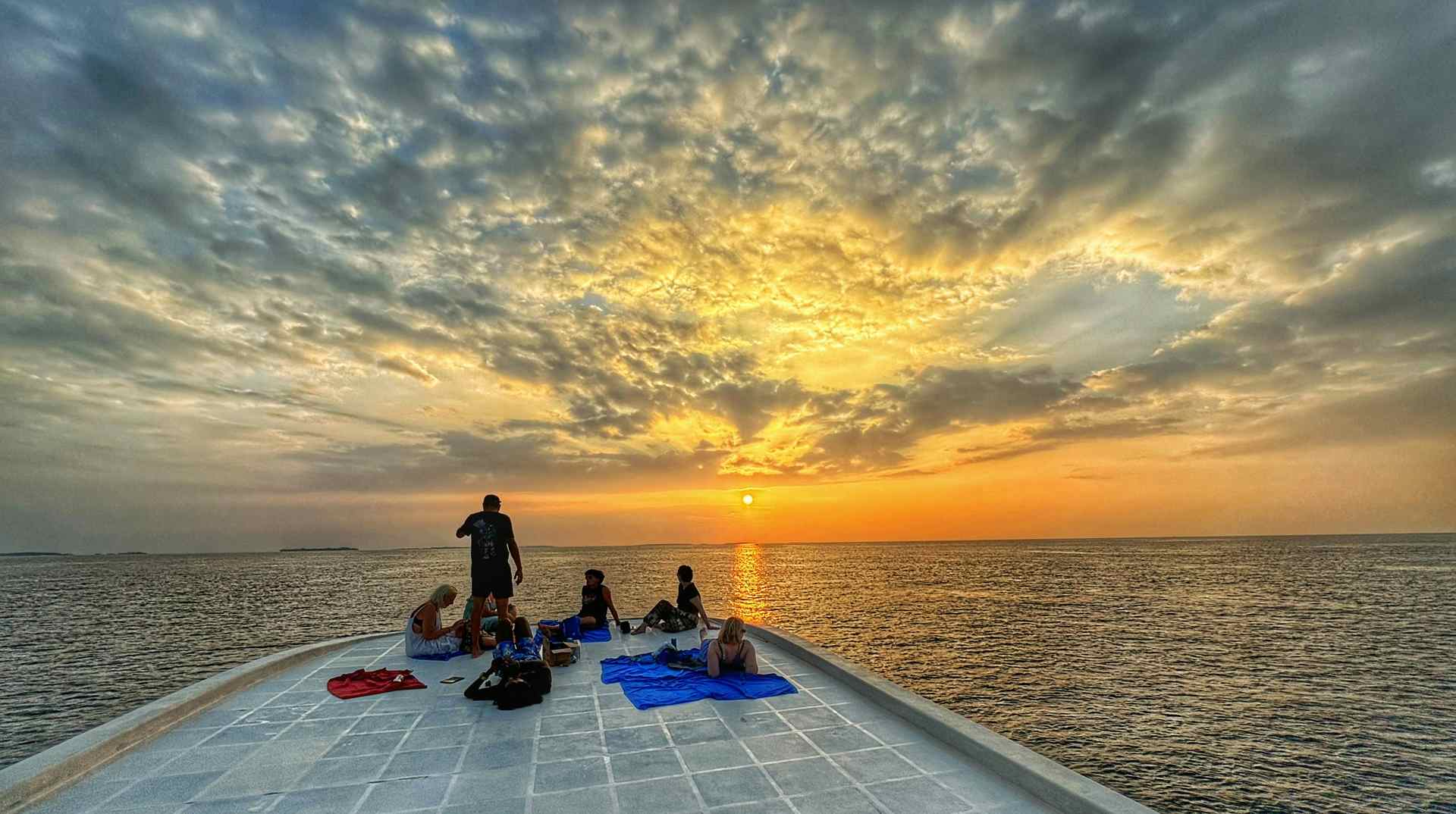

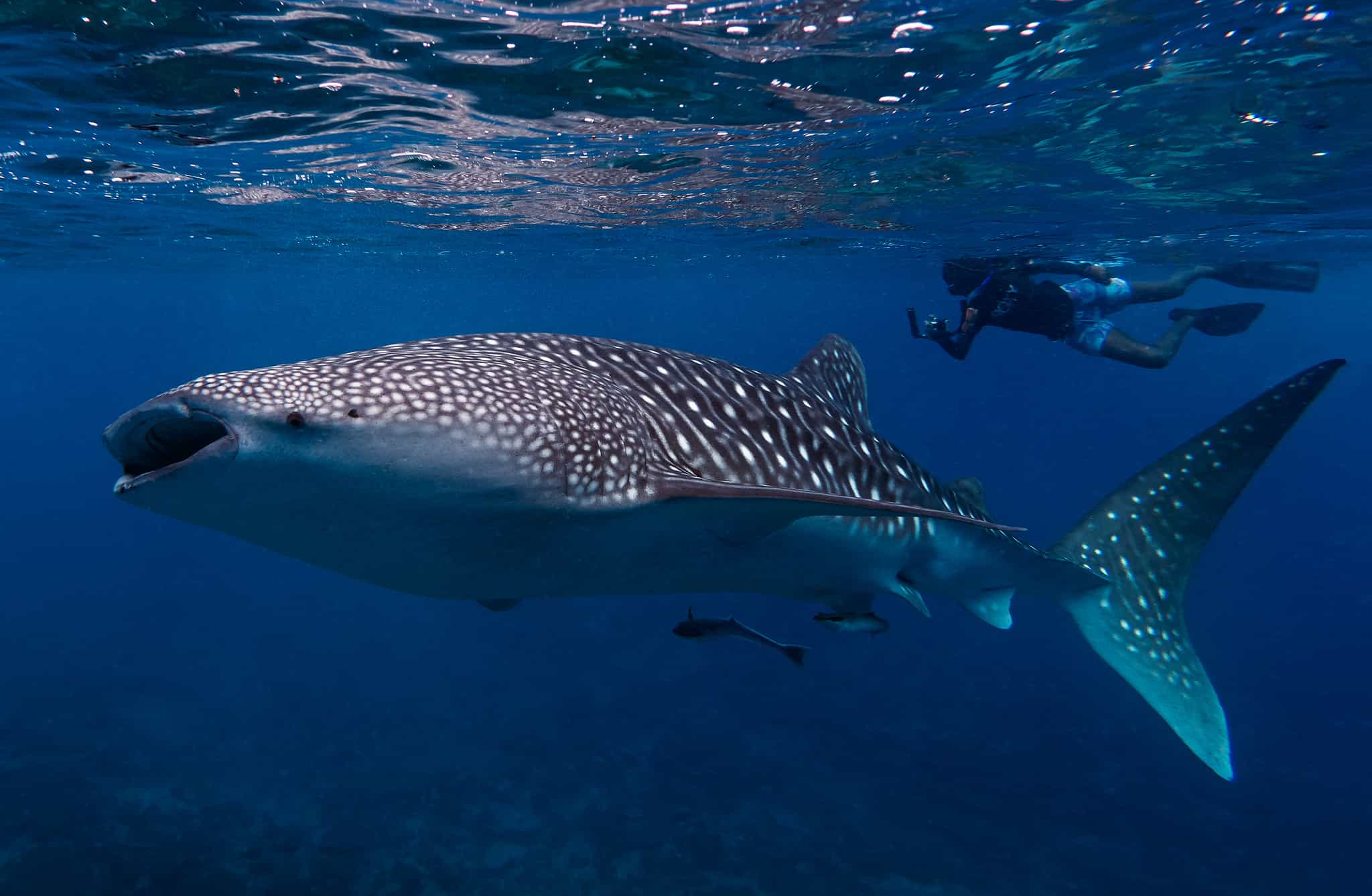
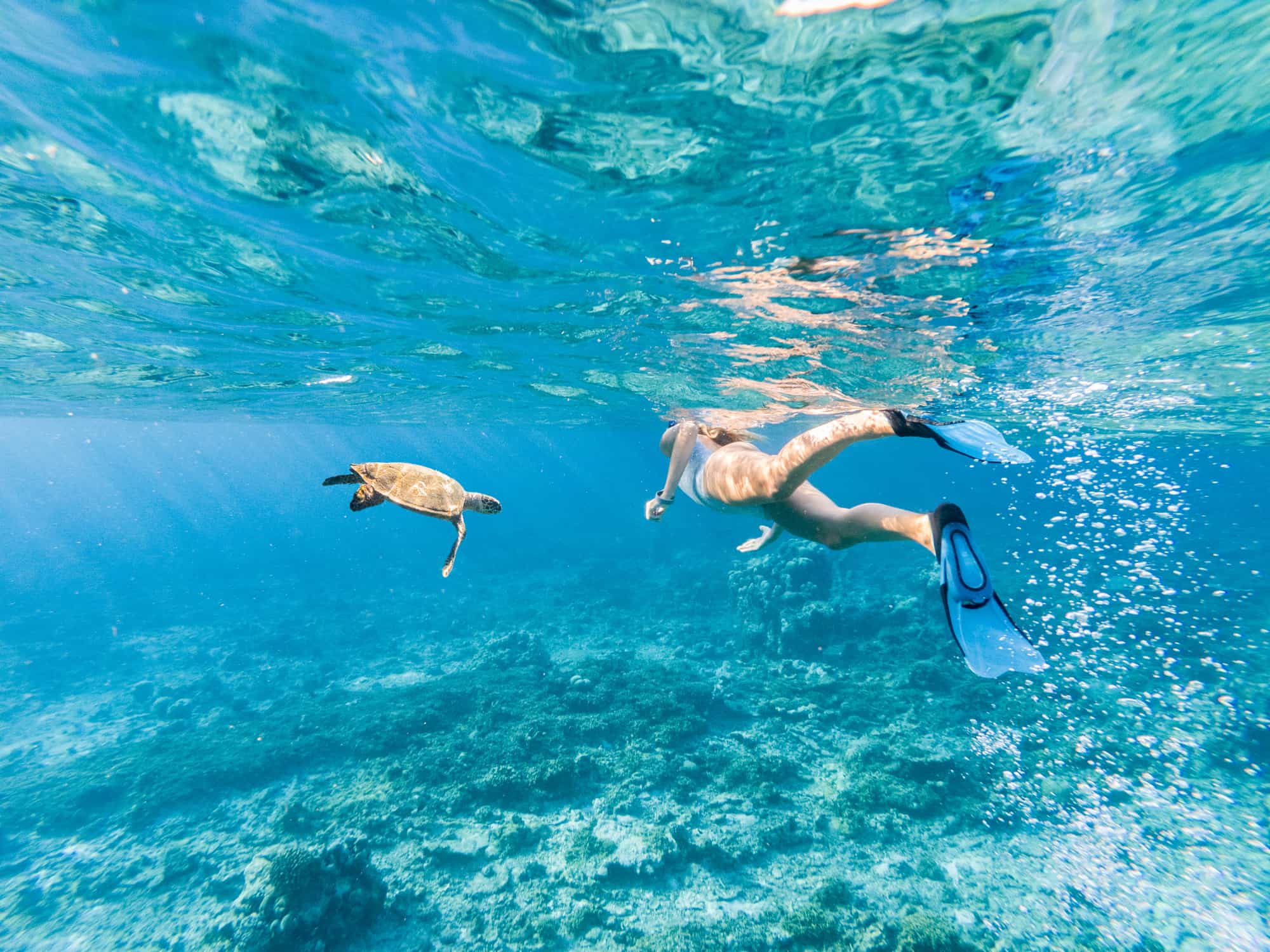
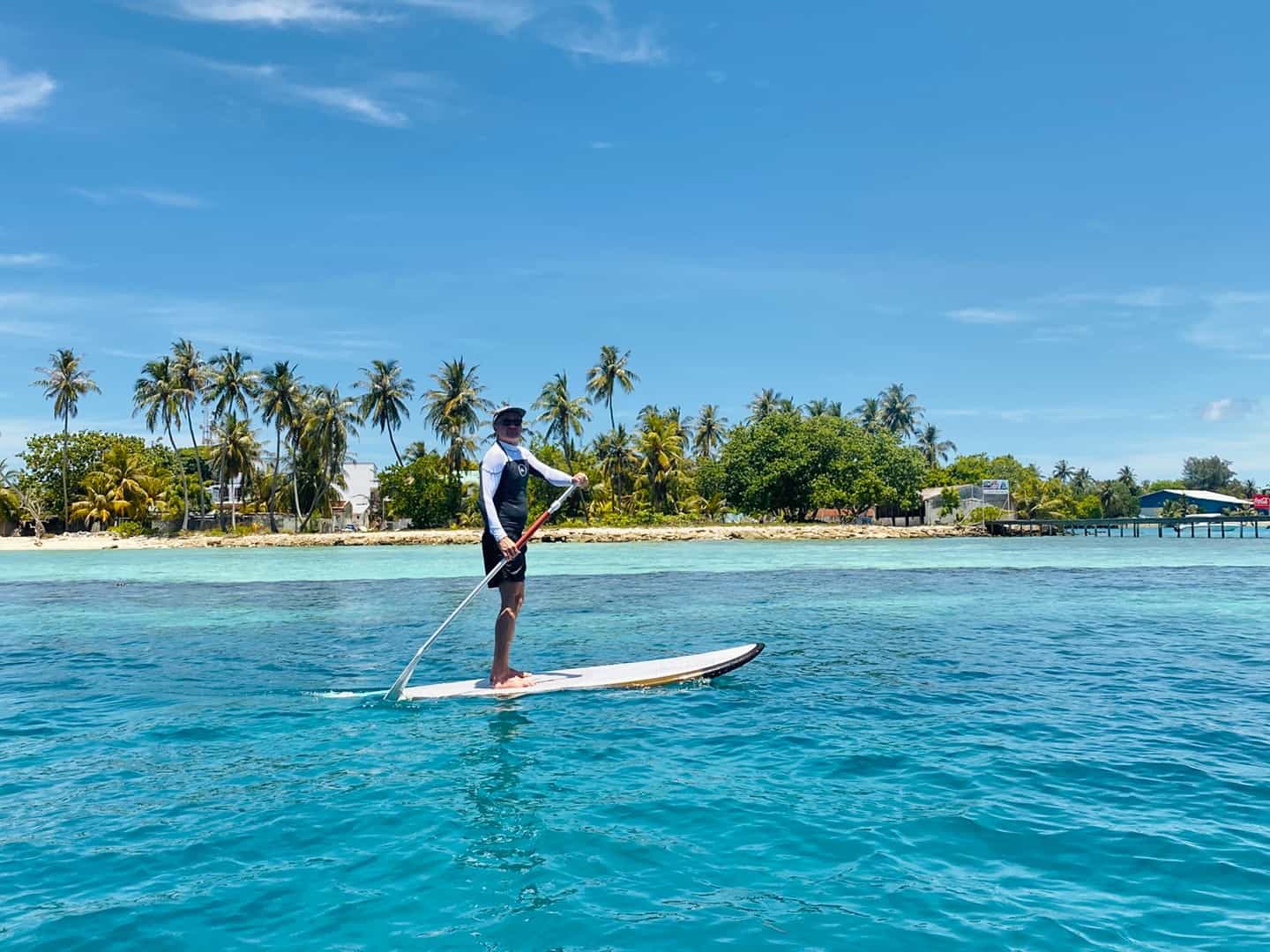
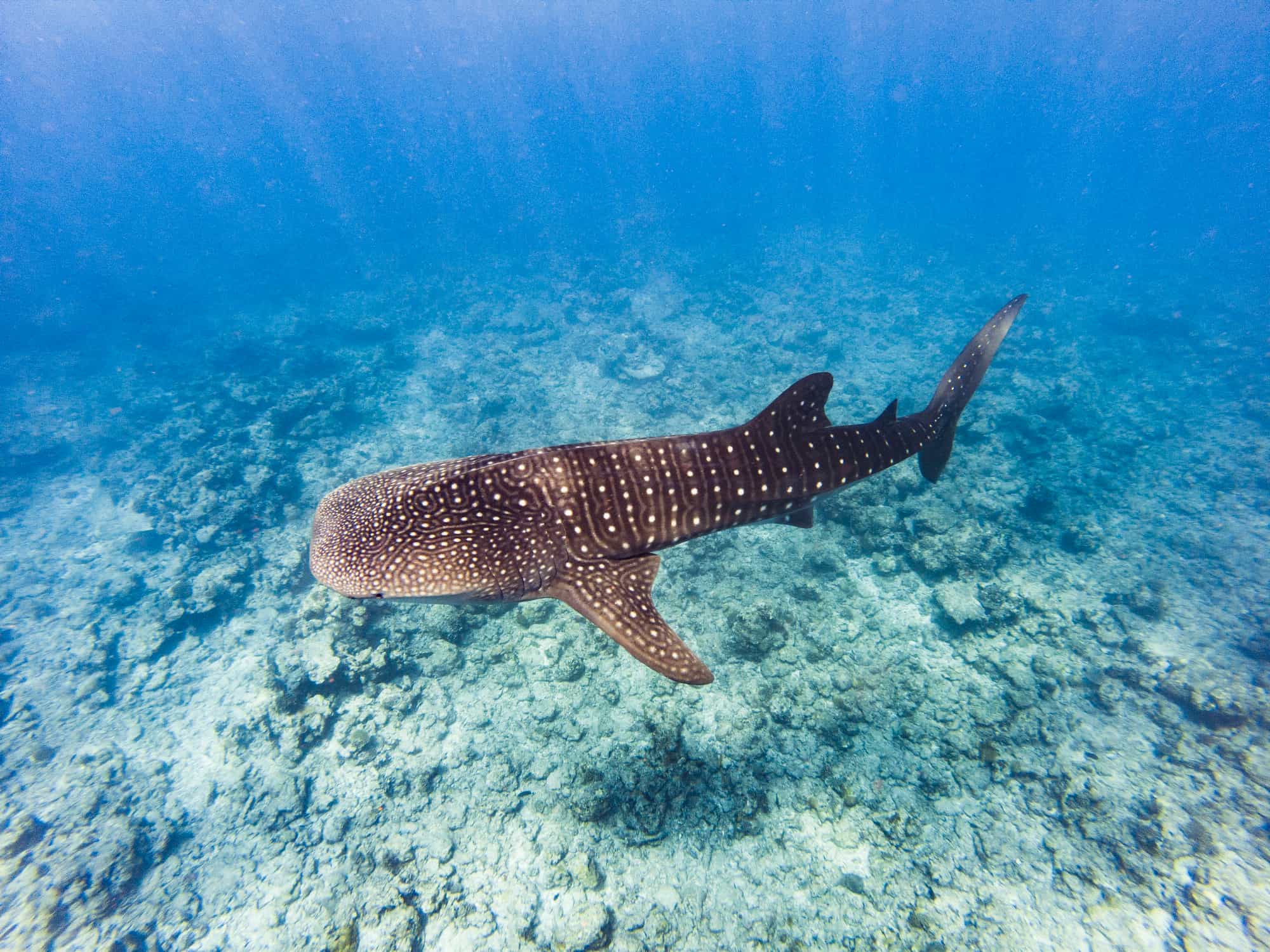
Explore an incredible marine world teeming with life – swim with whale sharks, snorkel kaleidoscopic reefs, set sail at sunset and enjoy beach cookouts
Stroll, kayak and SUP your way around these pristine tropical islands, discovering dazzling sandbanks and beaches
Uncover the real Maldives by hanging out with local islanders and learning how to make a traditional Maldivian breakfast
Want to explore more of the Indian Ocean? Check out our extended adventure in the Maldives and Sri Lanka
Key Information
Day 1
Welcome to the Maldives!
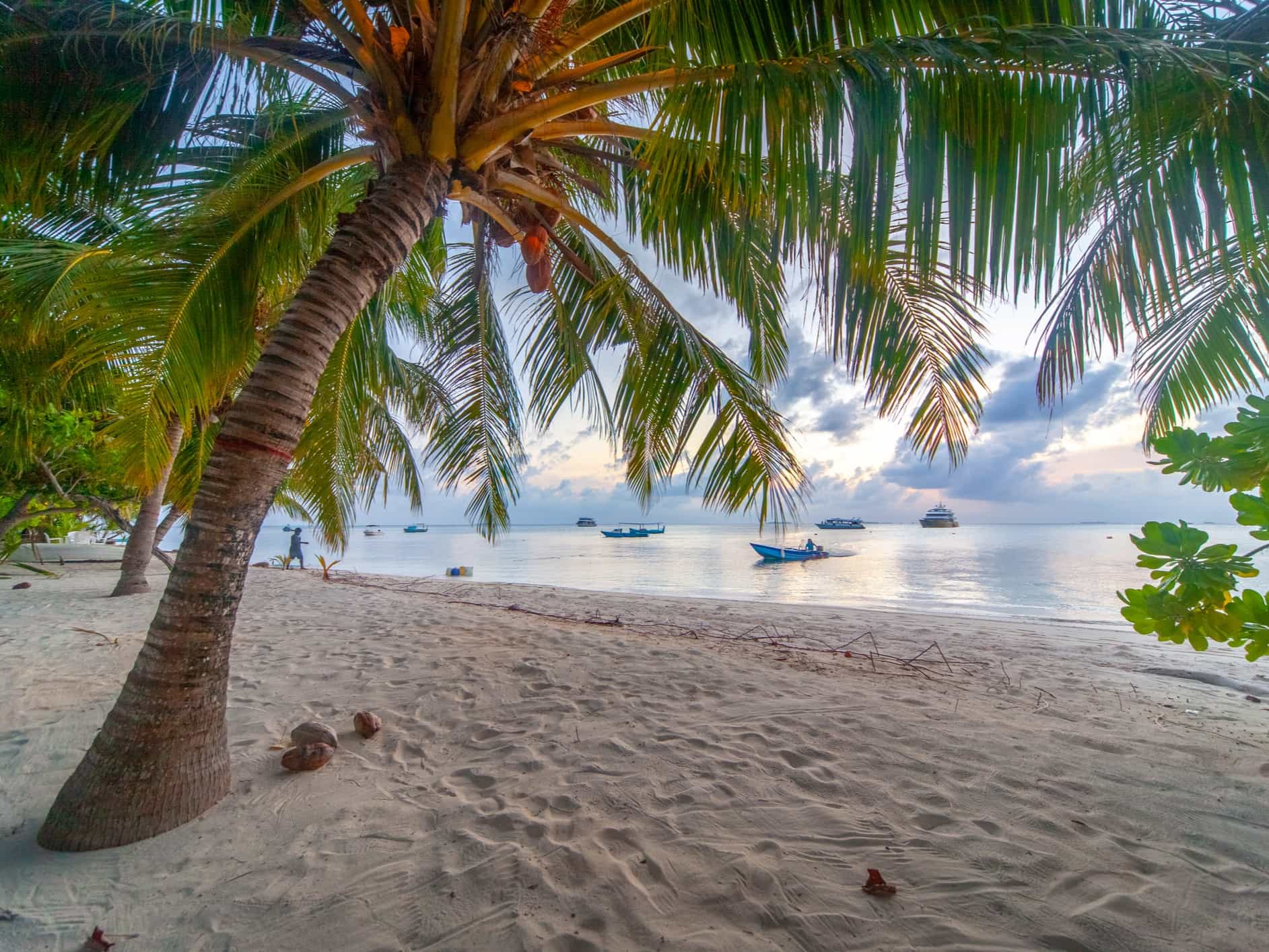
Boat Ride
Snorkelling
Touch down in Male where your guide will be waiting to greet you. Board the 11:00 scheduled speedboat for an exhilarating two-hour journey across the Indian Ocean to reach the tiny colourful island of Dhangethi. Keep your eyes open for dolphins and get the first glimpse of the vast archipelago. Arrive at your guesthouse with time to settle in and have lunch, before a taster of some snorkelling in the incredible Maldivian waters on the island's house reef. During this introductory session your guide will give a briefing on safety and responsible snorkelling practices, as well as assisting any less experienced snorkellers to ensure your equipment is comfortable and you feel safe in the water. Relax on the beach and catch your first Maldives sunset before dinner at your guesthouse, followed by a talk about human impact on the marine ecosystem and what we can do to limit this.
Day 2
Kaleidoscopic reefs and Maldivian life
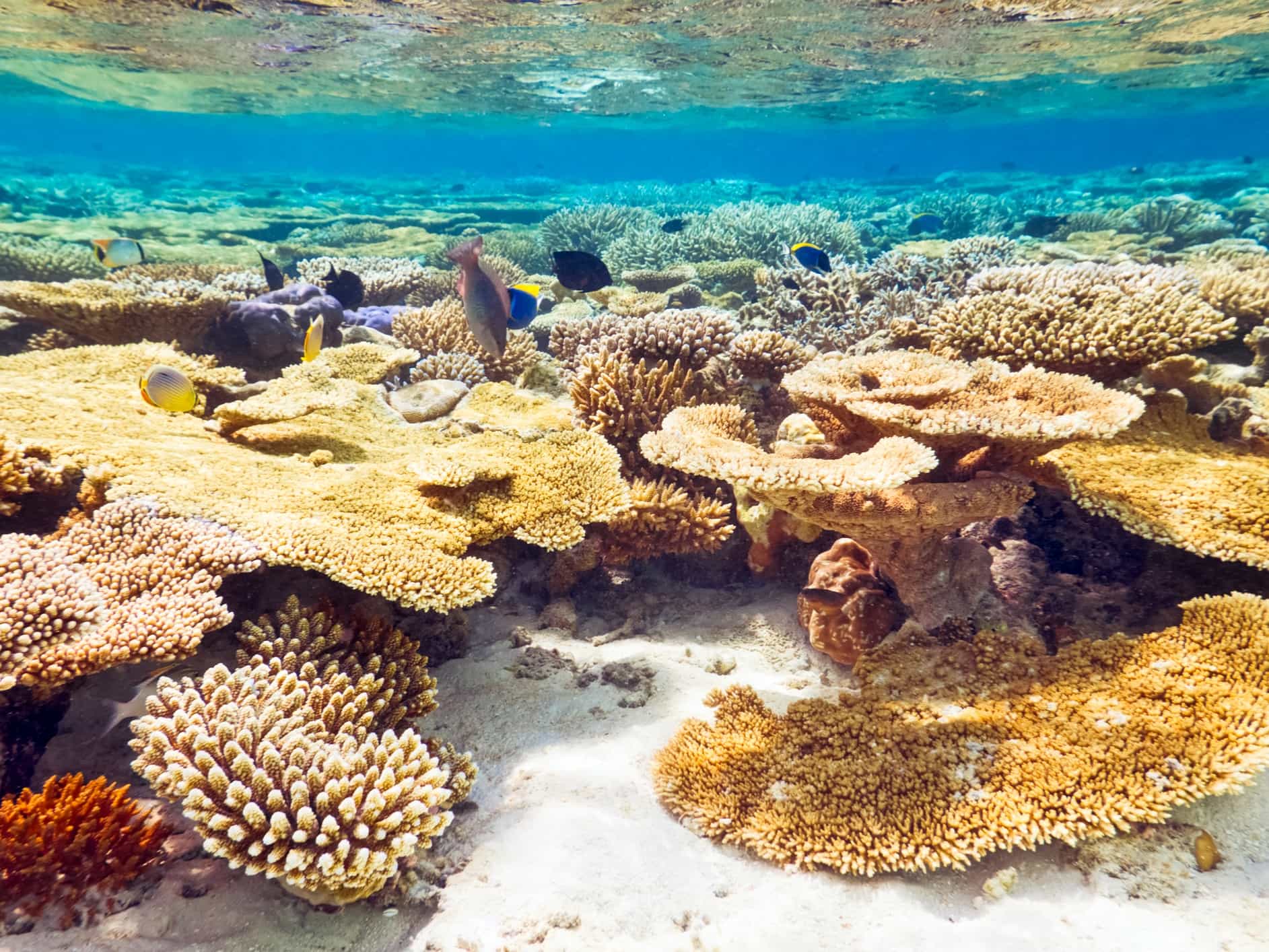
Snorkelling
Set off by boat for some guided snorkelling along the nearby reefs, which are teeming with marine life such as sharks, manta rays and turtles. Your guide will act as your spotter, pointing out incredible creatures that may not have caught your eye. As the afternoon cools down, take a leisurely guided walk through Dhangethi, offering an authentic glimpse into daily island life as it unfolds. You’ll gain insights into the local way of life, passing by the island’s essential infrastructure, such as the mosque, school, medical centre, and police station, which all play a vital role in Maldivian island communities. Learn how to open a coconut, chat with locals on the street and stop at a local cafe for hedhikaa – a traditional Maldivian snack.
Day 3
Swim with whale sharks

Boat Ride
This morning, you’ll head out on an adventure in search of the ocean’s largest fish: the magnificent whale shark. A code of conduct briefing will precede your boat journey into the South Ari Marine Protected Area (SAMPA) – spanning 45km, it's one of the most well-known regions in the Maldives for the chance of an encounter (although whale shark sightings are never guaranteed). Your host uses traditional search methods – scanning the ocean from the boat with the trained eyes of their expert local crew – and in line with established best practices (which help protect both the species and the marine environment), the crew remain mindful of the number of vessels and snorkellers present at any one time. On a lucky day, you may see several whale sharks within a short period; on others, just one – yet it's this unpredictability that makes the experience all the more exciting. If you are fortunate enough to spot one, you’ll have the incredible opportunity to snorkel alongside these gentle giants; an unforgettable and humbling moment.
Day 4
An untouched sandbank and night snorkelling
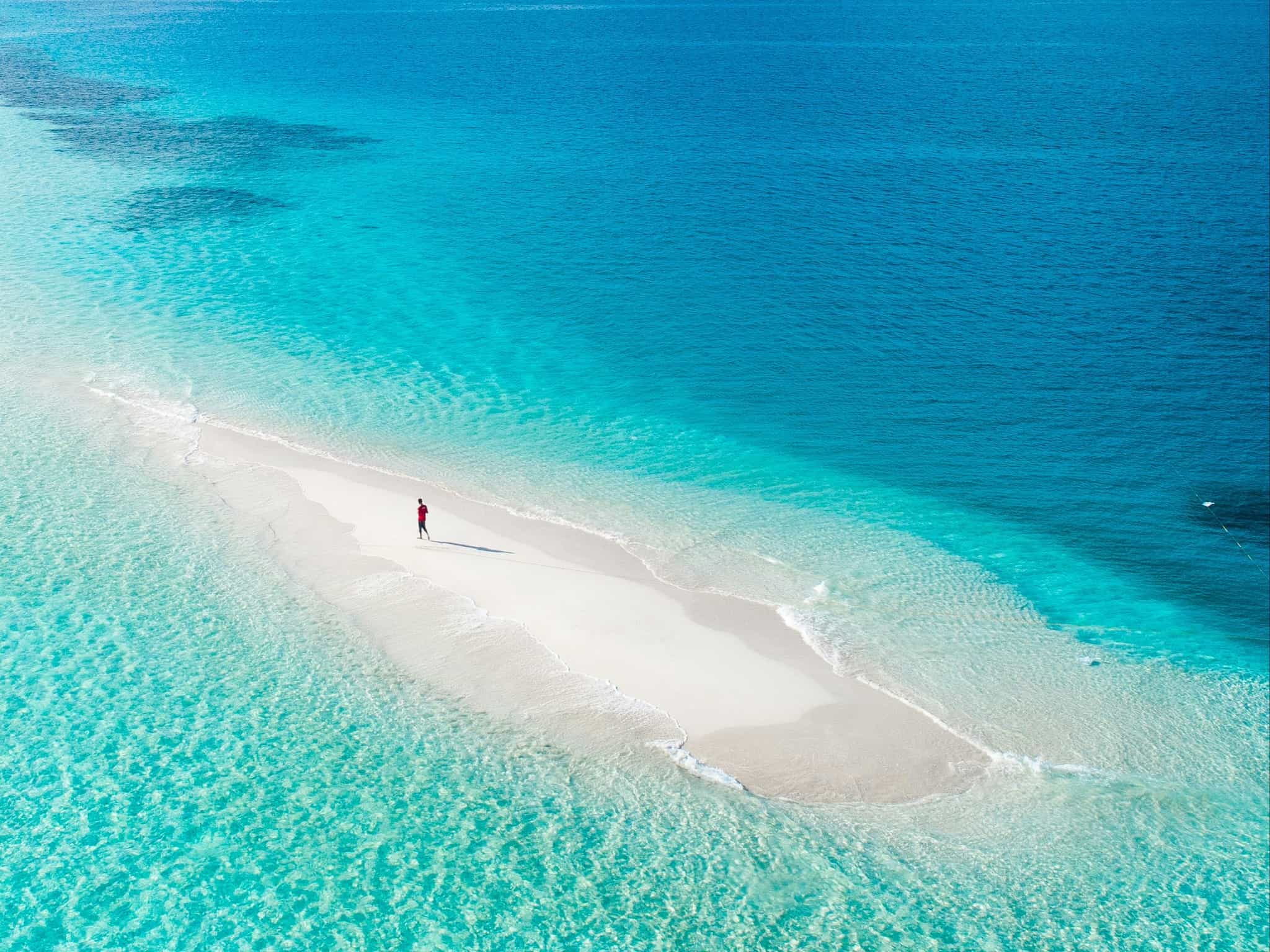
Boat Ride
Snorkelling
Hop on a speedboat and travel to an untouched sandbank, the epitome of tropical paradise: a pristine stretch of white sand emerging from crystal-clear turquoise waters in the middle of the Indian Ocean. Swim, snorkel or simply lie back and relax, as well as tucking into a picnic lunch. As the sun begins to set, gear up for a night snorkelling adventure, where you'll discover a whole new underwater world. With a bit of luck, the beam of your torch will reveal nocturnal creatures emerging from their hiding spots, vibrant corals coming to life, and octopuses, moray eels, and lobsters venturing out in search of food.
Day 5
Sunset sailing in the natural paradise of Dhigurah
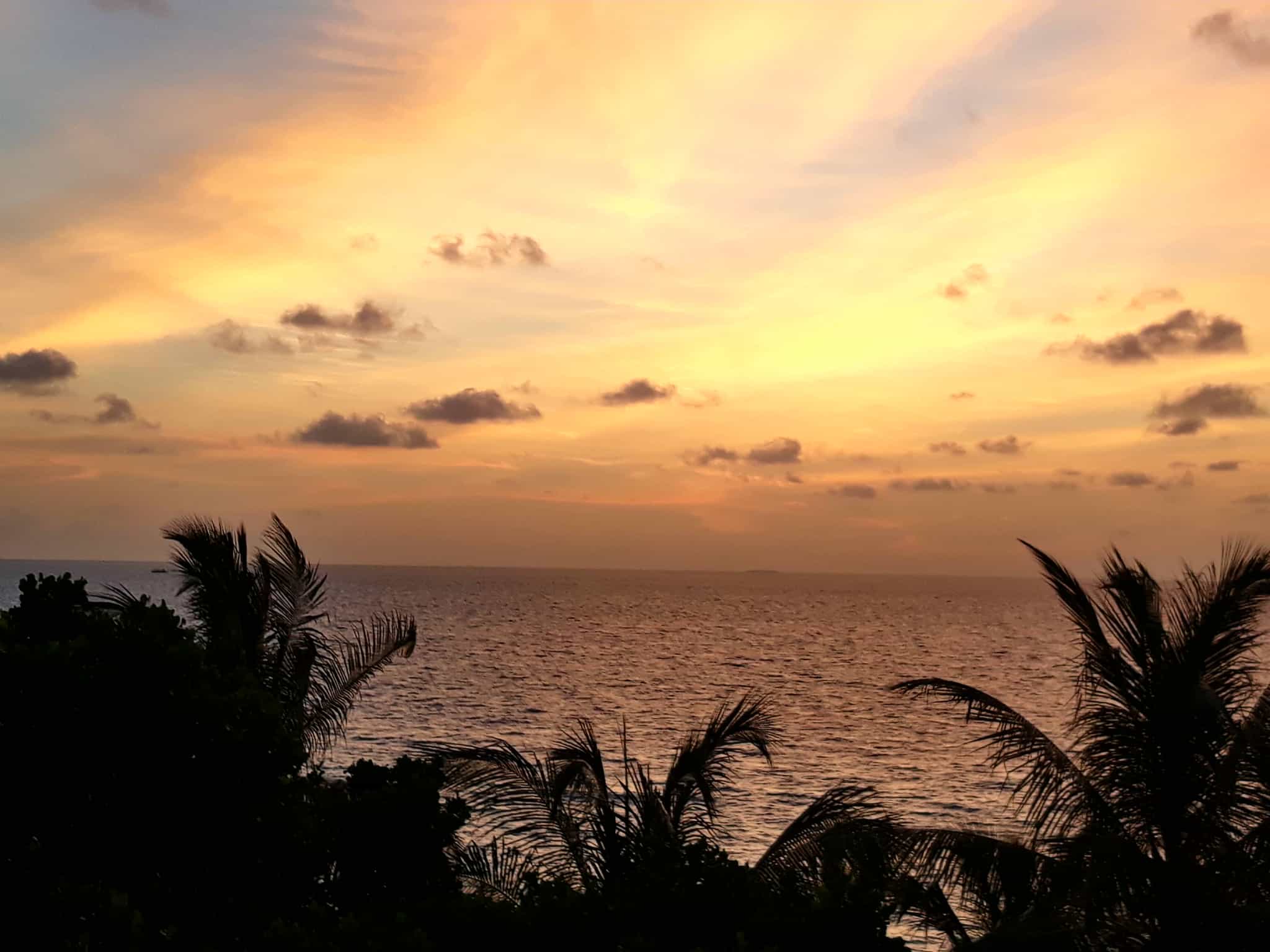
Boat Ride
Learn how to cook a traditional Maldivian breakfast – mashuni (tuna and coconut) and roshi (flatbread) – before island hopping by speedboat to Dhigurah, your next base. Settle in to your guesthouse and have lunch, before heading out to explore the island with your guide. Stroll the sandy lanes and witness how local tourism and the community sit side by side. Before dinner, you'll head out by boat for a sunset cruise to enjoy the brilliant hues of the sinking sun as it dips below the horizon. Keep your eyes peeled for dolphins, as they are often seen at dusk.
Day 6
SUP, sand and snorkelling
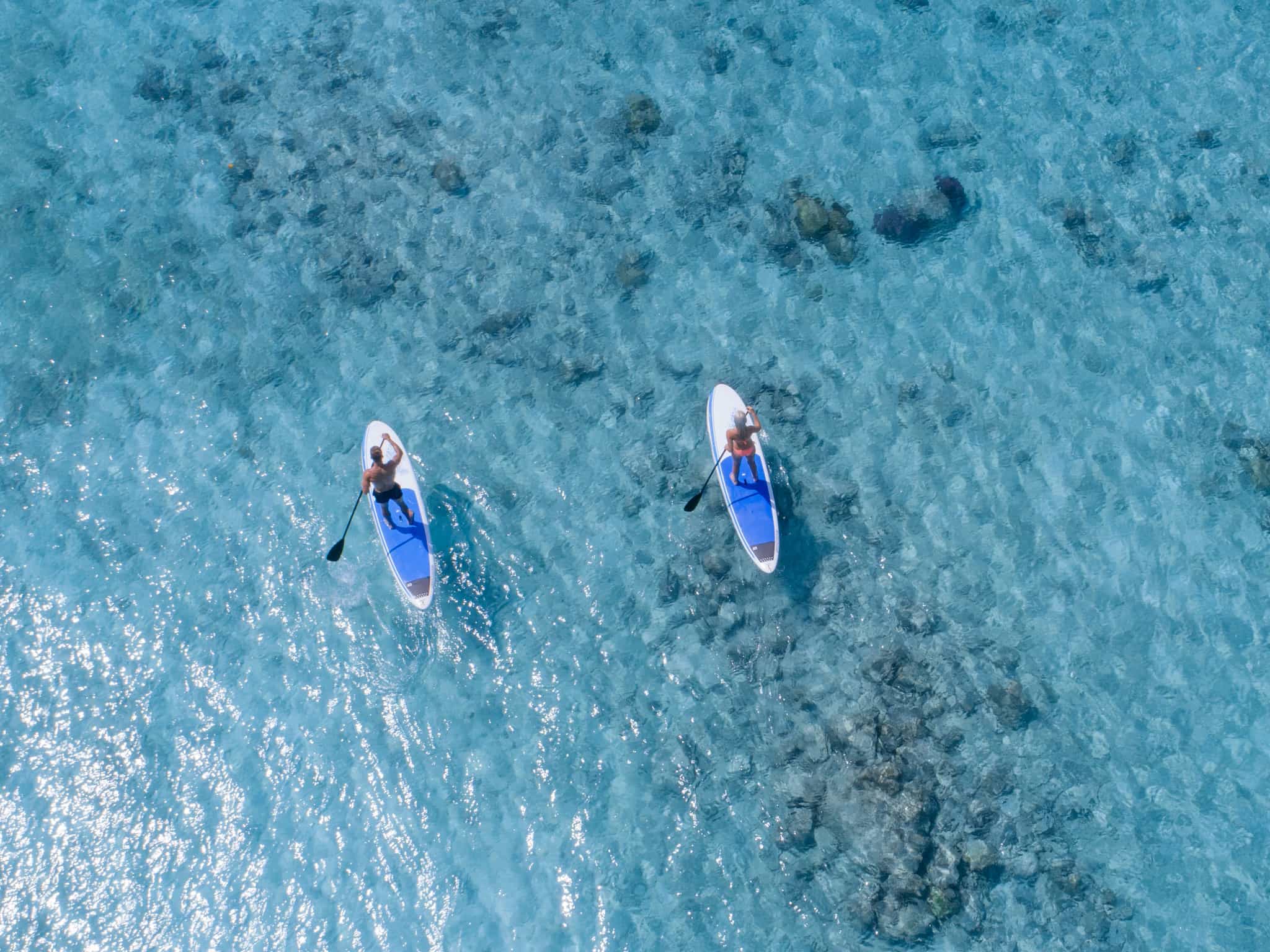
Stand Up Paddleboarding
Snorkelling
'Dhigurah' means ‘long island’ and at 3km, it is indeed the longest in the atoll. It is also one of the most picturesque, with its stunning stretch of sand (one of the longest beaches in the Maldives) and protected lagoon. Spend the morning at the beach, either relaxing, swimming, or getting active – head out in kayaks or on paddleboards to explore the huge turquoise lagoon, stopping to swim and snorkel along the way. After lunch, hop on a boat for another guided underwater encounter. Discover coral reefs teeming with fish and marine life, keeping your eyes peeled for turtles and sharks.
Day 7
From beach to jungle
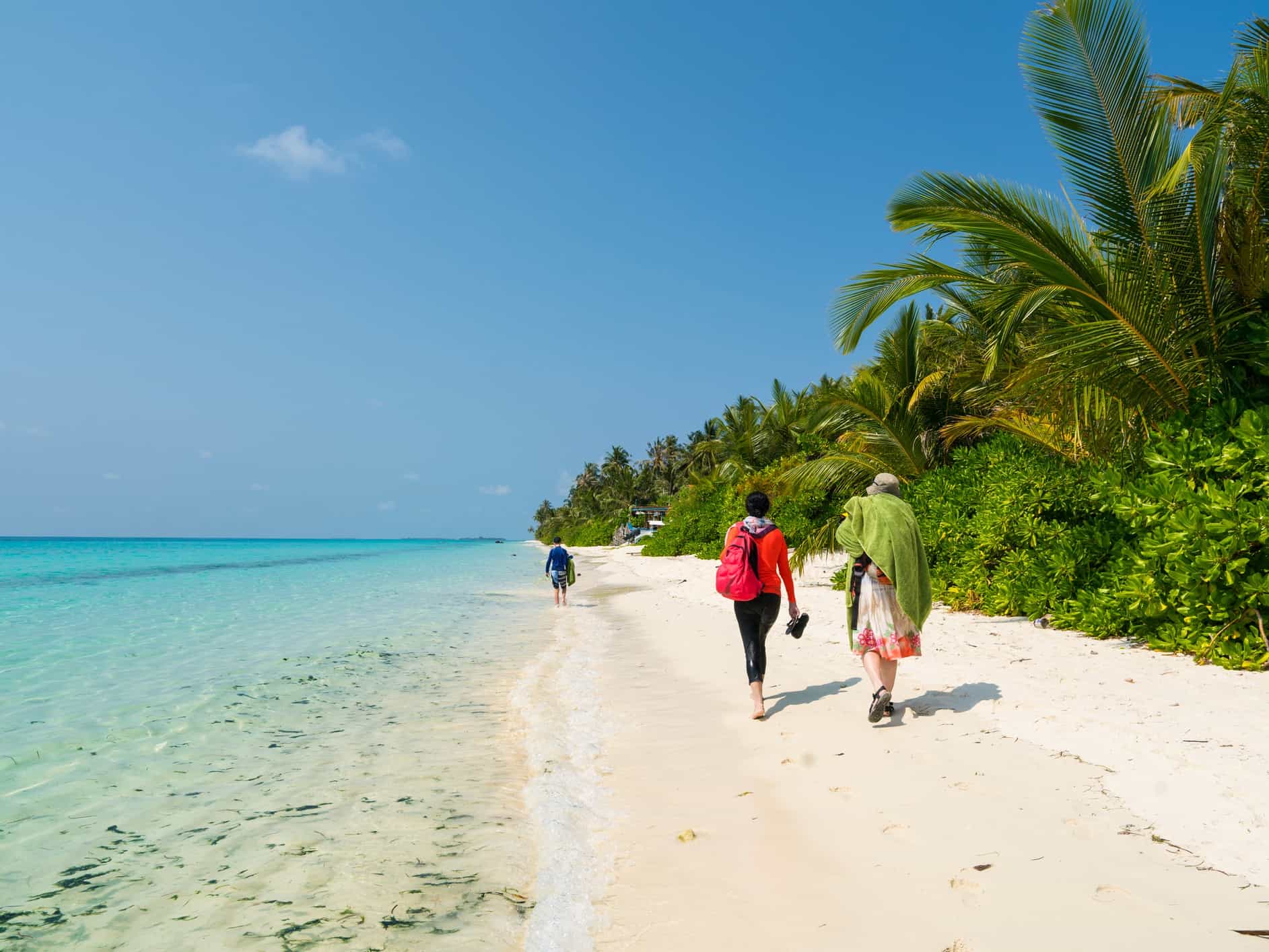
Hiking
There are no set plans this morning: the option to book a whale shark or manta ray snorkelling excursion is available, or you may wish to simply make the most of the beach. This afternoon, swap the beach for the jungle and enjoy an exploration of the evergreen forest, which covers two-thirds of the island. Be ready to get hot and sweaty, as this is equatorial territory. As you come to the end of the hike, take the opportunity to give back to the community by completing a beach clean-up. Your reward will be a refreshing ocean swim! Come nightfall, you'll enjoy a relaxed beach barbecue under the stars.
Day 8
Farewell, paradise
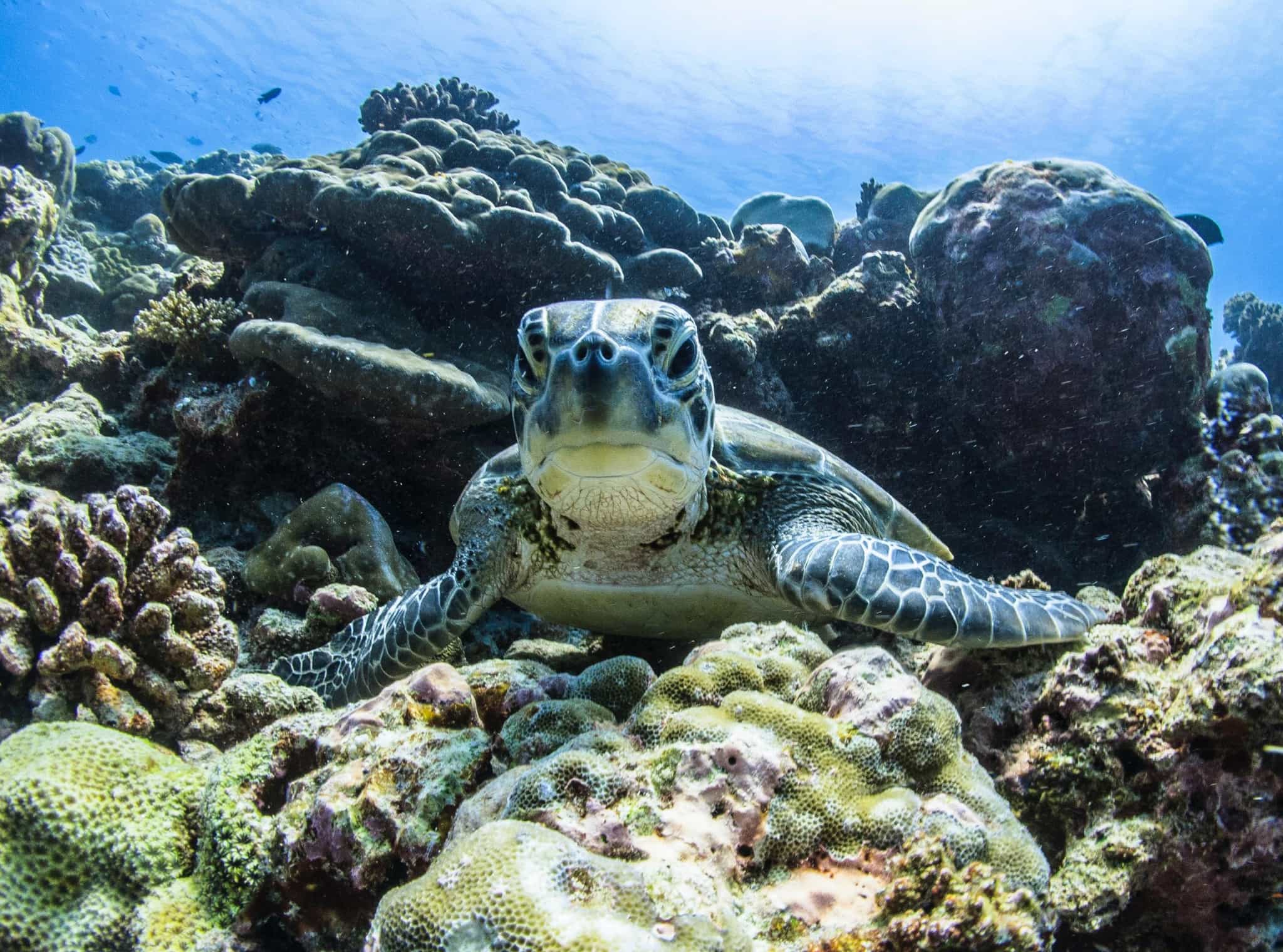
Boat Ride
Grab a boxed breakfast and transfer by early morning speedboat to Malé International Airport, arriving by 09:00, where your adventure comes to an end. You'll need to ensure that you book a flight that is scheduled to depart after 12:00 (midday) today.
The Area
Logistics
Starts
Male Velana International Airport
Arrive by 09:30 on Day 1
Ends
Male Velana International Airport
Depart after 12:00 midday on Day 8
Transfers
Speedboat arrival and departure transfers are included as described on Day 1 and Day 8.
Arrival Transfers:
On Day 1 your host will collect you from Velana International Airport in Male.
Please try to book a flight that arrives by 09:30 on Day 1 if possible. You will take the 11:00 scheduled speedboat transfer to Dhangethi (the speedboat takes approximately two hours).
However, if your flight arrives after 09:30 (and before 14:30), you can join a later speedboat transfer, scheduled to depart at 16:00. There are a number of cafes and restaurants at Velana International Airport where you can relax after your flight, including AC seating areas. Please note, anyone taking the later transfer will miss the introductory reef snorkelling session.
If your flight schedules don't fit the itinerary planned on Day 1, we recommend you consider arriving one day prior to the start of the trip.
Departure Transfers:
On Day 8 you will transfer by early morning speedboat, departing Dhigurah at 06:30 and arriving at Male Airport between 08:30 and 9:00, depending on ocean conditions. Please do not book a flight that is scheduled to depart before 12:00 (midday), in order to allow a three-hour check-in window which is essential during peak periods in the Maldives.
For those with evening flights scheduled to depart after 19:00, a further transfer can be arranged, departing Dhigurah at 13:30 and arriving at Male Airport between 15:30 and 16:00, depending on ocean conditions.
The speedboat transfers are generally reliable, but your host will monitor the weather forecast and ocean conditions for the last day of your trip. If bad weather is likely to disrupt the speedboat schedules, your host will recommend travelling back from Dhigurah to Male in the afternoon of Day 7 to ensure you are able to make your flight.
Extending Your Stay:
If you wish to arrive before the trip start date or stay longer at the end, your host can arrange private airport transfers and pre/post-trip accommodation. See Optional Extras for prices.
Travel options
There are direct flights to Male International Airport from London Heathrow with British Airways and Virgin Atlantic, as well as direct routes from other airports across Europe.
Day 1
Breakfast
Lunch
Dinner
Day 2 – Day 3
Breakfast
Lunch
Dinner
Day 4
Breakfast
Lunch
Dinner
Day 5 – Day 7
Breakfast
Lunch
Dinner
Day 8
Breakfast
Lunch
Dinner
What is the food like?
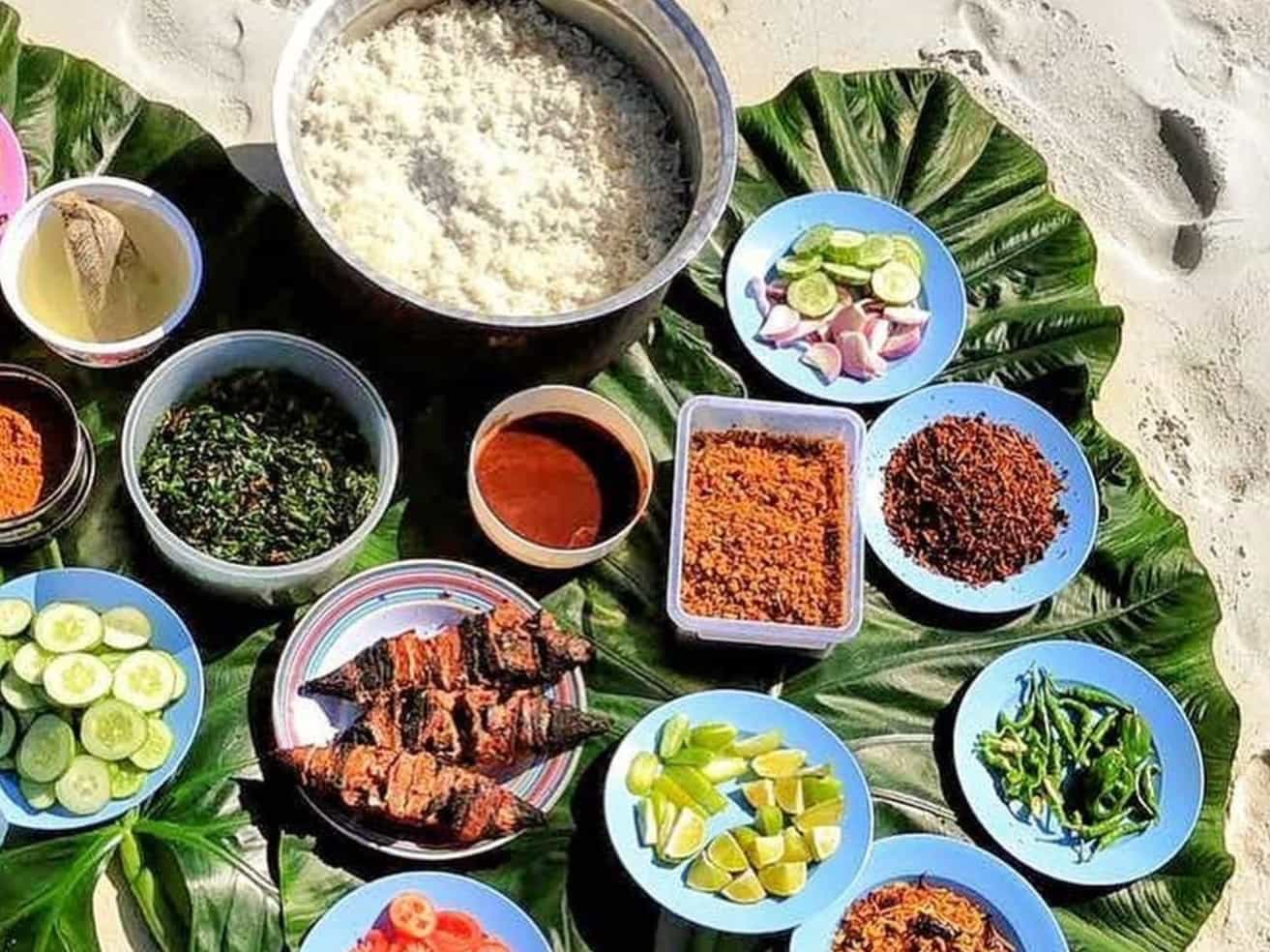
Traditional Maldivian food usually involves fish (particularly tuna), chilli and coconuts. White rice and roshi (a flour-based flatbread) are also staple items. You'll get the chance to taste some delicious local specialities, as well as the typical evening tea called hedhikaa, which includes strong black or milk tea with savoury fried snacks. Lunches are not included but these will be readily available in the restaurants or cafés of the guesthouses, which often serve Western food too. On the smaller islands local supermarkets/convenience stores may have limited items, so if there is something particular you are going to want, we would encourage you to bring it with you. Be prepared for perhaps a little more repetition of meals than you would be used to back home.
Please note: Maldivians, as Muslims, are prohibited by law from consuming alcohol. This means that there is a restriction on the availability of alcohol, even in Male. Please do not bring alcohol through the airport, as it will be confiscated and returned to you when you depart. Visits to private resorts to purchase alcohol can be arranged, however, this is subject to authorisation, based on occupancy at the resort, and an entrance fee and transfer charge will apply.
Vegetarians, vegans and other dietary requirements and allergies can be catered for but it is worth noting that over 95% of these products would be imported. Fruit and vegetables, whilst available, are not abundant and given that fish is a key component of the local diet, you will find your vegetarian or vegan diet quite limited.
What is the accommodation like?
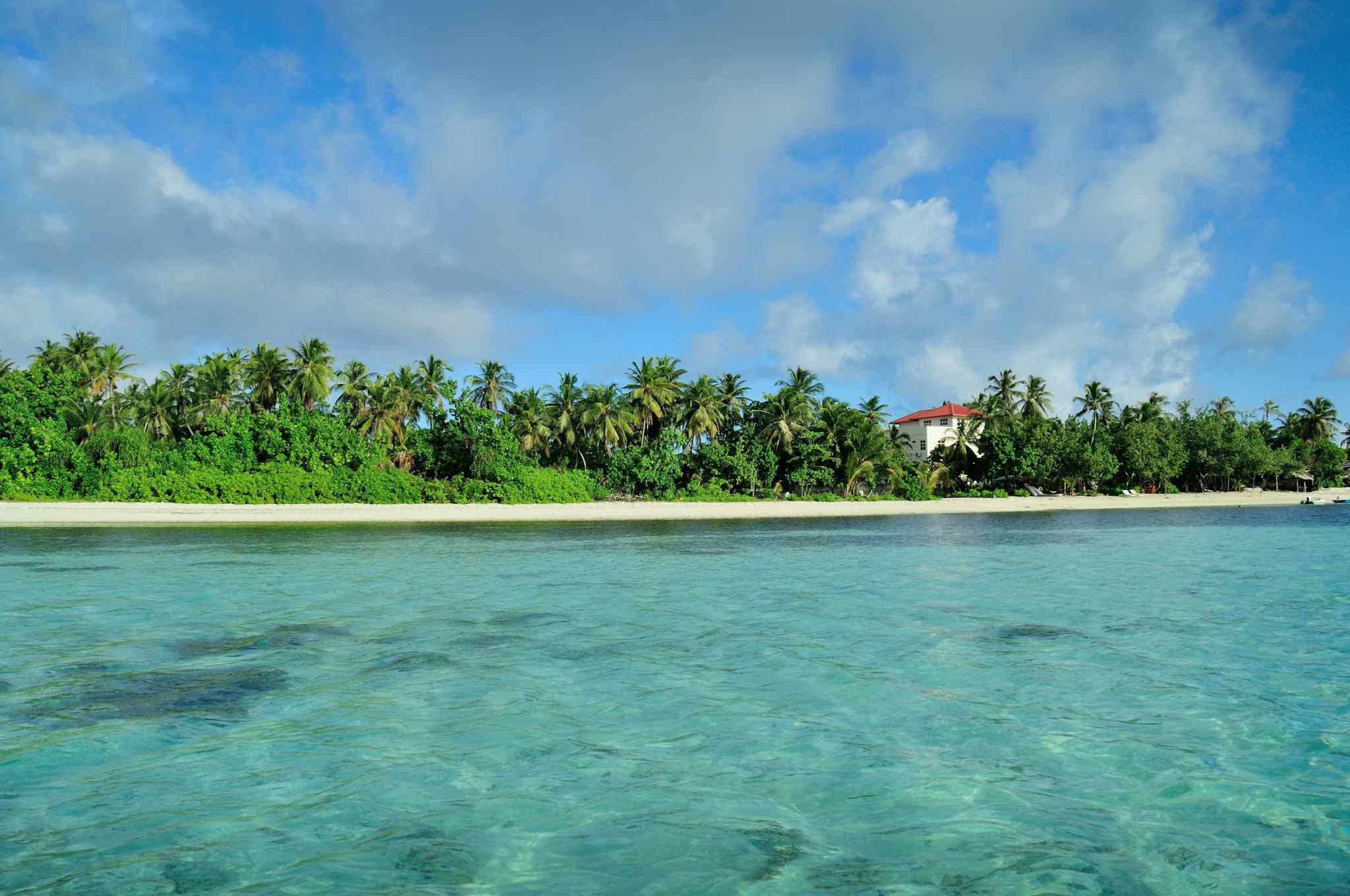
Dhangethi
You'll spend the first four nights in Dhangethi, an authentic local island untouched by mass tourism, dominated by exotic tropical flora, fringed with turquoise waters, and home to a maze of narrow streets and colourful houses. You'll stay at the locally owned guesthouse Antares Dhangethi, located just a few steps from the white sands. Accommodation will be in twin-share rooms equipped with air conditioning, free WiFi and private bathrooms. The restaurant serves delicious local and Western cuisine, as well as snacks and drinks.
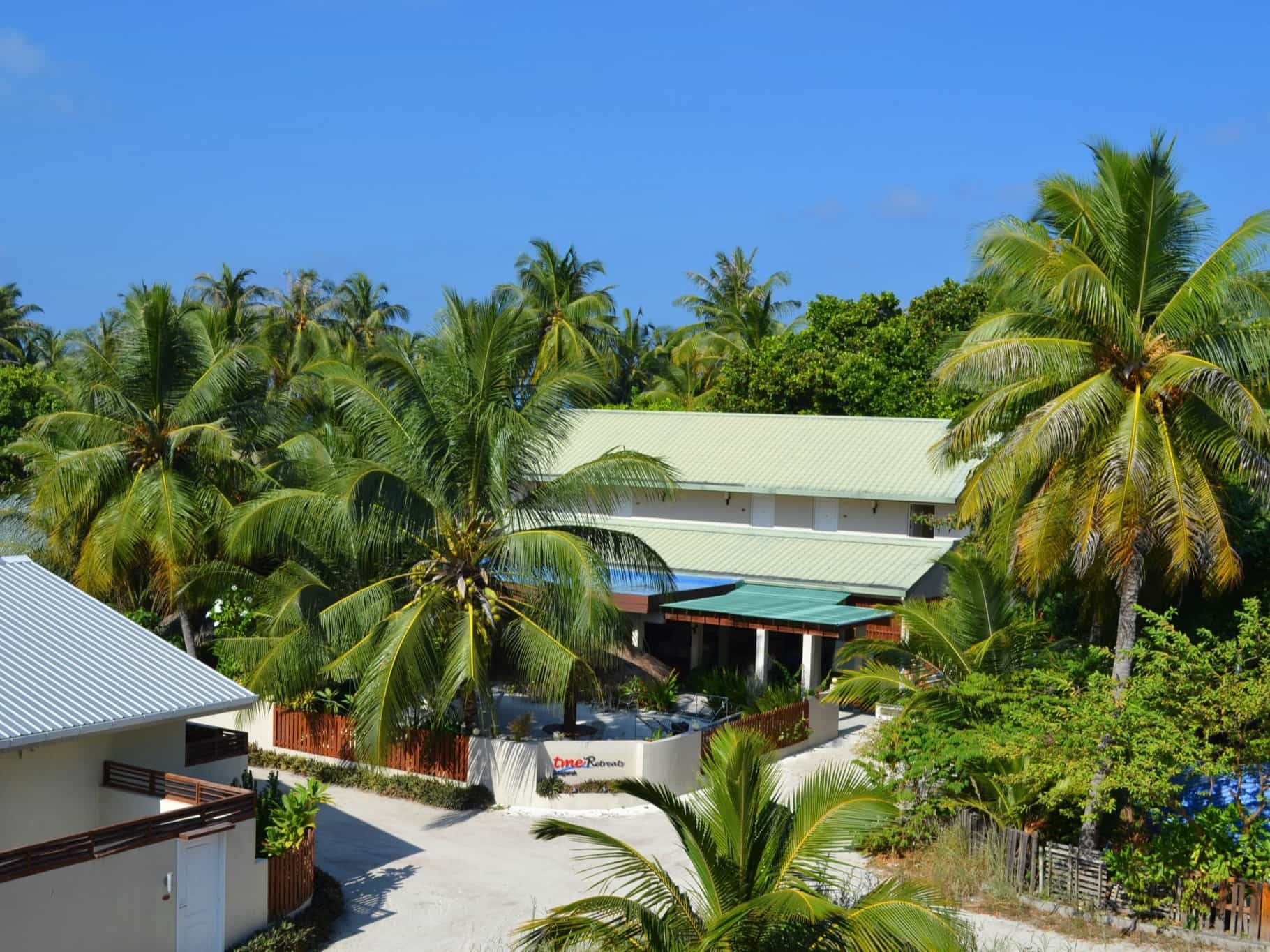
Dhigurah
You'll spend another three nights in Dhigurah. Located in the South Ari atoll it's one of the most picturesque locations in the Maldives with its long beach, protected lagoon and pristine sandbar. You'll stay at the stylish beach hotel TME Retreats Dhigurah. All rooms are twin-share and come with free WiFi, air conditioning, TV and tea/coffee facilities. The hotel also has a great in-house restaurant.
This trip has been rated as Easy
No previous experience is needed for any of the included activities – just an average level of fitness and a sense of adventure. The activities aren't strenuous, the aim of this trip is to immerse yourself in the natural wonders of the Maldives. An introductory briefing will be provided for snorkelling, kayaking and SUPing – the only requirement is that you must be comfortable in the water and able to swim.
The hot, humid weather can be challenging to adapt to, so plenty of free time has been built into the itinerary to allow you to rest and avoid too many hours of sun exposure. However, if you are feeling energetic there are plenty of options to fill your day, including extra kayaking, snorkelling or other water-based activities such as diving.
What will I need to carry?
Your main luggage will be transported for you and can be left at the accommodation so for the activities you'll only need to carry a small daypack (or drybag for the water-based activities).
With a tropical climate, plenty of sunshine and temperatures around 30°C throughout the year, there is never a really bad time to visit the Maldives. There are two distinct seasons: the dry season (northeast monsoon) from January to March and the wet season (southwest monsoon) from mid-May to November. 'Wet season' doesn't mean it rains all the time, but during this period there is more rain than during the dry season. This may be a daily heavy shower but it's very rare to have days and days of rain in succession or even for a full 24 hours. There is usually more wind during this season, but this helps keep the temperatures at a nice level and you can still expect plenty of blue skies and sunshine.
Like many places in the world today, the climate and weather patterns are changing and historical data is becoming less reliable as an indication of what to expect. As the islands are situated so close to the equator it is possible to get sunburn even on a cloudy day, so sunscreen should be applied as a matter of course.
A Really Different Maldives
I must admit, when I signed up to the “Island Hopping Adventure in the Real Maldives”, I was not expecting such a reality check from the dreamy beeches, and palm trees as seen on picturesque insta feeds.
What we got was a mix of big humid city life, small hotels and a whole load of restrictions that other resort tourists do not see. However, the trip in itself was immensely beautiful, interesting and captivating, thanks to a group of 5 girls that got on superbly well, and were willing to try out things and explore.
Our guide was full of local stories & he taught us a lot about life, nature and a passion for art and painting. I truly liked his commitment to protecting the nature.
Regarding the trip itself, the Much Better Adventure Team, could have been more forthcoming with the travel information, and also better organised in timely informing the group about the necessary items to take and the actual reality of the trip. The brochure that comes with the trip is not 100%.
There is no need for water purifying tablets for example, no need for a 1st Aid Kit, or portable hiking rubbish bags. However, there is a definite need for antihistamine and mosquito repellants and itch/ bites cream.
Water refills are available at all hotels, as well as towels (all bar the eco beach, where a microfibre towel is advisable).
Note that there was a confusion about the correct immigration website, and some of us got scammed by an alternative provider. The correct link needs to be provided on time.
Few details on the week itself: Day one should have been the Eco Island and not a trip to Malé town. It was a lost opportunity to gain snorkelling confidence and acclimatise post a very long flight from the UK. The instructions that we should have got would possibly include:
-
Day 1: hotel accommodation in Dhangethi:
-
The Hotel Staff were super nice and helpful
-
Note that the island is very local and fairly quiet on the tourist side, so local customs apply stronger
-
Plenty of beach / activities towels are available
-
BYO shower gels
-
Limited clothes drying facilities
-
Inform fully about the bikini beach conditions
-
Inform that women HAVE TO cover their shoulders / legs
-
Shoes are always taken off, so best is to wear flip flops
-
Mosquitos are intense and bites relief and antihistamine are advisable
-
Day 2: the second island Dhingurah
-
Intense mosquito alert
-
Better sized room for a twin share
-
The “jungle hike” is not a hike, but a nice walk through the greens of the beach. I’d advise to have swim gear at hand
-
Clothes can dry on the balcony or patio
-
The food choice was great
It is certainly better to have ones own snorkel and mask, fins are available, but on some trips they are charged extra. Diving and additional snorkelling is also charged extra.
Regarding the rooms, it was disappointing that I had shared accommodation, whilst everyone else had their own space. Considering the hotel rooms were small and there was little room for two and the luggage.
The last day in Hulhumale, the Hotel was small and very loud. The staff were nice and friendly, but there is no bikini beach and there is little to do.
It would have been better to have stayed one more night at a beach hotel and then taken the 1st water ferry to the airport it one was taking the early BA flight back.
All in all a lovely trip, simply for the nature, but lots that needs improving. I would recommend it with some adjustments, and possibly another few extra days to add, if one is already there.
It was a good trip. The
It was a good trip. The tour guide was professional and friendly. We saw plenty of animals,turtles,whale sharks,manta ray(with optional activity). The first accomodation we were staying was amazing. I am just a bit disappointed about the tour operator Much better adventure. First they didn't warn us about the possible scam with the visa( an admin was on the whatsapp group ,the admin saw the chat of us saying some of us are paying for the visa and didn't react)they didn't warn us enough before to leave about the culture and that women should cover shoulder,no bikini on some places etc. . . neither that we have to wear flip flop only and about the mosquitoes problems. Second,the itinerary was not great,the first and last day are useless so on a 7 days tour you only enjoy 5 days. We didn't understand why we didn't take the ferry back to the main land the evening instead of the morning because there was nothing to do on the main land,we cannot even enjoy the beach as it is not bikini beach. . . I would prefere instead to stay more longer on the last island or be warned about this and be able to book extra activities. The 2nd accomodation was dirty and the last one was creepy!(Small room,dirty,window faces to a wall,staff very unfriendly,bad location(nothing to do around). Finally, One day is described as "Jungle hike" and i was very looking for it but it is not true,first there is no jungle it is a few little trees next to the beach and it is not a hike!You have to wear your flip flop,don't expect to see like giant trees or wildlife. . . . very disappointed about this. It was very nice to see plenty of animals but i think it was more luck that because of the tour. I loved Maldives but the trip could have been more well organised and is very expensive ,we could have better accomodations on the last day
Beautiful destination
The Maldives is a truly beautiful destination and it was good to see some less touristy bits - the hospitality in the family run hotel in Dhangethi was a real highlight as was the food there. The snorkelling is also amazing. Although we didn’t see whale sharks, we saw a plethora of fish and turtles and had fantastic dolphin sightings on the sunset cruise.
However, for me it wasn’t five stars as I booked this trip on the basis that it offered multiple activities but several things on the itinerary didn’t happen eg. The 3 hour hike was cut down to a one hour walk and the 2 hour kayak and 2 hour SUP were amalgamated into one hour in which you could do either but not both (apparently there wasn’t enough equipment to offer both but surely there was enough time to source/arrange this in advance of the group arrival). The reasons for these omissions was never explained - when we referenced the itinerary we were told we didn’t have the right one but the guide declined to share his with us. However, if your interest in the trip is primarily snorkelling, I would recommend.
Great tropical adventure
Really enjoyed this. Great to see aspects of the Maldives you wouldn't see at a small private resort. Fantastic marine life including manta rays and turtles





Fantastic Trip.
Absolutely fantastic trip. Would recommend it to anybody. Zaff was a brilliant tour guide.
Highlights were swimming with a Whale Shark and Manta Rays. The Mantas weren't part of the itinerary, but you're given the opportunity to go if you want to, I think it was about $50 or so.


Absolutely incredible
Amazing trip! The water is clearer than any I've ever experienced! Swimming with whale sharks, turtles, rays and every fish you could imagine was just incredible! Take 50% DEET spray as the mosquitoes are relentless!







Once in a lifetime adventure in paradise
What an adventure! We had a brilliant time in the Maldives, guided by our wonderful local guide UB who brought the place to life with his own experiences and knowledge. Particular highlights for us were the lunch at a village home (organised via the Womens' Development group on the island), the sunset cruise with dolphins, and the snorkelling /diving is second to none. We had whale sharks, manta rays, turtles, and every kind of fish...incredible place.
I booked this on my
I booked this on my own very last minute with about 2 days to spare but the MBA Team were fantastic about squeezing me in- thank you!
I'm so glad I did: the group was fun and the guide (Zaff) was excellent - not just on the snorkeling and exploring but also on Maldives history and culture. Swimming with Mantras was a highlight for me but the whole experience is highly recommended ⭐️⭐️⭐️⭐️⭐️




An amazing trip, thank you!
This trip surpassed all of my expectations. We spent a fantastic week seeing lots of wonderful wildlife, eating tasty food and learning about local culture. Our guide Zaff was amazing, always going above and beyond to make sure everyone was happy, and he went into each activity with so much enthusiasm that we enjoyed everything even more (somehow!)
It was great to learn about the Maldives as a country and to get stuck into island life. I’d 100% recommend this trip to anyone.
A wonderful trip, everything I
A wonderful trip, everything I expected and more. The snorkelling was amazing and the mix of local islands, culture and activities perfect. Zaff our guide went over and above from the start and really made the trip. The highlights were snorkelling with Manta Rays and sunsets on beach with the whole group. I would have stayed an extra week if I could.





Amazing Maldives
An amazing trip with some great people. Zaff our guide was enthusiastic, fun-loving and friendly, but knowledgable too. He was also very keen to please and keep everyone happy. The mix of islands was great and the snorkelling can't be beaten. We didn't manage to find a Whale Shark but we did have a cool encounter with some Manta Rays and plenty of other sharks, a turtle, Eagle Rays and Fruit Bats
Visiting various islands provided plenty of variety and interest. A great way to see the Real Maldives. We tagged two nights at a resort onto the beginning of our trip too which was a nice contrast to the local islands and highly recommended
This was my first much
This was my first much better adventures holiday and from the moment we landed to the day we departed we were looked after very well by our two knowledgeable guides. My personal highlights were snorkelling with the Manta Rays and my first scuba diving lesson. The magic really is under water in the Maldives!
Here’s to many more MBA holidays to come!
If you're looking for a
If you're looking for a way to see the natural beauty of the Maldives without the tedium of being stuck on a resort then this is the trip for you. Our departure was unlucky with the weather and the whale sharks but we still had some fantastic experiences including snorkelling with manta rays. The guides were fantastic and made sure that the group had a great time.
.
I have just returned from
I have just returned from this trip and still feel like I have spent the last week in a dream! It was such a fantastic week, for those who love the water. We swam and snorkelled most days, so I would suggest that if you can’t swim, or it’s not your thing, don’t book this trip. The magic really is in the sea. Our guide UB was fantastic, made everything so easy for us. Practically, the kit list was accurate. Only thing I didn’t need was the water purification tablets, there was plenty of fresh water. I also got a flight back Sunday night, but would say that if you aren’t extending your trip, leave in the morning. Personally I didn’t think there was anything to do on Hulumale, the final island. There is no ‘bikini beach’ for sunbathing as it’s a local island. I also can’t express how intense the sun can be, so high factor protection and rash vests are essential. I would recommend this trip in a second, it was truly stunning and I now can’t wait to go back to explore more islands.
An amazing trip - really well hosted and executed- a fine time indeed- highlights included swimming with a whale shark and lunch on a sandbar ( after swimming around it) - go for it.
Fantastic trip - a wonderful warm welcoming country. The diving and snorkelling were amazing, the people were fabulous, our local guide was really great and everything was truly memorable. I’d go again tomorrow..
Itinerary Activities
- Speedboat transfer from Male to Dhangethi Island
- Guided introductory snorkelling on Dhangethi house reef
- Guided snorkelling boat trip off the coast of Dhangethi
- Walking tour to meet the local community of Dhangethi
- Whale shark safari in the South Ari Marine Protected Area
- Swimming and snorkelling at an untouched sandbank
- Guided night snorkelling adventure
- Maldivian breakfast cooking experience
- Speedboat transfer from Dhangethi to Dhigurah Island
- Sunset dolphin-spotting cruise from Dhigurah Island
- Kayak/SUP along the shores of Dhigurah Island
- Guided reef snorkelling boat trip from Dhigurah Island
- Guided forest walk and beach clean-up on Dhigurah Island
- Speedboat transfer from Dhigurah Island to Male
Guides
- Expert, local, English-speaking guides
Accommodation
- 7 nights in locally owned hotels and guesthouses
Meals
- All (7) breakfasts
- 1 picnic lunch
- 7 traditional Maldivian dinners
Transfers
- Group arrival transfer from Male Airport on Day 1
- Group departure transfer to Male Airport on Day 8
- All transfers during the trip (mainly by boat)
Equipment
- All snorkelling, kayaking and SUP equipment
Our trips are hassle-free by design. We include all the activities and equipment, as well as many of the meals, so you can simply rock up with your rucksack and share the adventure with your new pals.
Travel to and from the trip
Our trips do not include flights, trains or other travel to the start point and back from the end point.
Tips
Tips are not included in the trip cost. These are entirely at your discretion but there is an expectation to tip for good service. Your guide will help with advice, however we suggest the below as a guideline per person:
- USD $30-$40 for the week
Of course, you are free to tip more or less, and the amount should be reflective of your perception of service and quality - a tip is not compulsory and should only be given when you receive excellent service.
Personal Expenses
You know your own spending habits best, so please budget an appropriate amount for things like optional meals and drinks, shopping, optional activities, and laundry.
Travel insurance
Travel insurance is compulsory for all of our adventures and you are required to provide your policy information before departing. Your insurance should include adequate protection for overseas medical treatment, evacuation/repatriation, your baggage and equipment and the specific activities involved on your adventure. We also strongly recommend it includes cancellation and curtailment insurance, should you be unable to join your trip for specific reasons such as illness. Our recommended travel insurance provider is Campbell Irvine, as their insurance offers all of the above.
Visas
Visa requirements often change, and you are responsible for obtaining any required visas for this trip. Please check with your nearest embassy or consulate for up-to-date advice.
What's included?
All equipment for kayaking, SUPing and snorkelling.
Although snorkelling gear is included/available for the snorkelling boat trips, the sand bank excursion and the whale shark safari, we strongly recommend that you bring your own mask and snorkel – not only for better comfort, but you'll also be able to use them during your free time throughout the itinerary.
What do I need to bring?
BAGS
- Overnight duffel bag or luggage
- Daypack (20 litres)
- Drybag for all water-based activities
CLOTHES
- Lightweight, casual, non-synthetic clothing (cottons and natural fibres are best) which appropriately cover the body when in company of the local communities. For more detail, see clothing section in the FAQs.
- Cool footwear (flip flops/sandals are best)
- Trainers
- Flip-flops or sandals
- Swimwear – rash vests or t-shirts are recommended for snorkelling, to avoid sunburn
- Light waterproof jacket
- Underwear and socks
- Sunglasses
- Sunhat
- Something to sleep in
OTHER
- Sea sickness tablets or wristbands
- Universal travel plug adapter (the Maldives uses mostly UK-style 3-pin sockets)
- Camera and/or underwater camera
- Powerbank or solar charger
- Passports (and visas)
- Travel insurance documents
- Ear plugs
- Insect repellent
- Plenty of high-factor, reef-friendly sunscreen (pack more than you would for a normal beach holiday), aftersun lotion and personal hygiene products. Check out this blog for more information.
- Personal first-aid kit (inc. blister treatment, antihistamine, bite treatment)
- Personal items (biodegradable toiletries, sanitary wear etc). Please note that tampons in particular are not readily available outside of the capital.
- Toilet kit (toilet paper, biodegradable bags to carry paper out to dispose of)
- Dive certification card and log book, if you intend to participate in SCUBA diving.
- Quick-dry towel
- Alcohol hand-gel
- Headtorch or torch
- Reusable water bottle x 1.5 litre
- Biodegradable wet-wipes
- Energy bars and snacks - read our article on Best Hiking Snacks
Additional Night in Hulhumale: Single Room (2025)
Payable Before Departure
Additional Night in Hulhumale: Single Room (2025)
… Per night
Additional Night in Hulhumale: Single Room (2026)
Payable Before Departure
Additional Night in Hulhumale: Single Room (2026)
… Per night
Additional Night in Hulhumale: Twin/Double Room (2025)
Payable Before Departure
Additional Night in Hulhumale: Twin/Double Room (2025)
… Per night
Additional Night in Hulhumale: Twin/Double Room (2026)
Payable Before Departure
Additional Night in Hulhumale: Twin/Double Room (2026)
… Per night
Optional Private Room Upgrade (May-Jul 2025) From...
Payable Before Departure
Optional Private Room Upgrade (May-Jul 2025) From...
…
Optional Private Room Upgrade (May-Jul 2026) From...
Payable Before Departure
Optional Private Room Upgrade (May-Jul 2026) From...
…
Optional Private Room Upgrade (Nov'24-Apr'25/Aug-Oct'25) From...
Payable Before Departure
Optional Private Room Upgrade (Nov'24-Apr'25/Aug-Oct'25) From...
…
Optional Private Room Upgrade (Nov'24-Apr'25/Aug-Oct'26) From...
Payable Before Departure
Optional Private Room Upgrade (Nov'24-Apr'25/Aug-Oct'26) From...
…
We partner with the World Land Trust to ensure this trip achieves Net-Zero emissions. We also support their Buy an Acre programme, helping local communities to buy and protect natural habitats in perpetuity.
What's the number?
It works out on average at 956kg of CO2 emissions per person, including all local transport, accommodation, food, activities, guides, staff and office operations.
The only thing it doesn’t include right now is flights and travel to the destination. We do make an overall estimate across all our customers separately, but as we don’t book flights, have customers from all corners of the world, and no way of reliably knowing their travel plans, we simply can’t include an individual number in the figure on display here. We’ve got a goal to fix that, so that when you book, there is a way to measure and mitigate the carbon emitted by your flight too.
But what does the number mean?
Yep, hard to picture eh? To give you an idea:
- Driving 1000 miles/1609km would be approximately 281kg of CO2 in an average car (or 140.5kg per person, if there were two of you in it).
- A return economy class flight between London and New York would be approximately 1619kg (1.66 tonnes) per person.
- 10 trees in a temperate forest are estimated to remove approximately 250kg of CO2 from the air in a period of 5-10 years.
What are we doing about it?
Our trips are relatively low-carbon by design, and we're working with all our hosts to develop long term carbon reduction plans. We partner with the World Land Trust to ensure this trip achieves Net-Zero emissions. We also support their Buy an Acre programme, helping local communities to buy and protect natural habitats in perpetuity, ensuring the protection of the reserve and its wildlife.
Want to know more?
Amazingly, no international travel company has ever publicly published their carbon measurements before, as far as we know. We believe that must change, quickly. So we’re openly sharing the method we used in the hope that other companies will be able to more easily follow suit and build on what we've done so far. You'll find it all here.
Marta Marinelli, raised in Italy’s serene Prosecco Hills, dreamt of global adventures, inspired by her father's travel stories. Her passion evolved into a career, backed by a decade of studies including degrees in international tourism and destination management. She’s worked in the adventure travel sector since 2012, living in Italy, the UK, and now sunny Portugal.
Over twenty years, Marta has explored over 55 countries, visiting remote areas like Ghana, Rwanda, Sao Tome and Principe, Haiti and Nepal’s Upper Mustang region. As a Senior Adventure Expansion Manager at Much Better Adventures, she focuses on creating life-changing experiences, ranging from multi-activity adventures, challenging treks to ultimate adventures in iconic places. She loves the challenge of finding the best local adventure hosts around the world, collaborating on adventures that offer genuine immersion, pushing beyond the beaten path and working on exclusive itineraries that challenge your comfort zone.
What makes her tick? Enabling people to live adventure-rich lives while positively impacting and empowering local communities around the world, generating sustainable opportunities for both the host, guides, community, and the environment.
The tap water in the Maldives is not always friendly on the stomach and therefore it's not safe drink, especially on the smaller islands where infrastructure is lacking. Filtered water refill stations are available in Male and Dhangethi, but access to these is not always guaranteed. For this reason, we recommend that you bring your own refillable water bottle and a water purification system (tablets or a UV handheld device, such as a Steripen). Please find more info here. Alternatively, your guide may recommend that 5L bottles of water are purchased and used to fill reusable water bottles. In this case, these bottles will all be returned to Male and handed over to a trusted local recycling project run by Parley.
Your local host will do their best to operate the itinerary as communicated, however, for your safety and comfort some changes may be required based on the weather and or sea conditions. All boat transfers are operated by independent companies and although they operate at scheduled times, services can occasionally get delayed or cancelled at short notice due to weather conditions, public holidays or mechanical failure. In the event of a cancellation, your guide will make alternative arrangements and reschedule any of the inclusions whenever possible.
In the unlikely event of significant itinerary changes which involve substantial extra costs (such as extra nights in hotels etc.), this would need to be borne by the customer to be claimed back via your travel insurance.
Ramadan will take place from 17th February to 18th March 2026. Ramadan is an Islamic festival where all Maldivians do not eat or drink during daylight hours. While this is a really interesting time to travel, you can expect some business hours will be shortened, and local cafes or restaurants will generally not open during daylight hours. It's possible that the timings of local ferry and speedboat transfer services will change too. Activities for local people tend to be limited during the day and the nights are very active with family gatherings and lots of different foods being sold and consumed. However, in hotel restaurants and tourist areas food and drink are served as normal and Ramadan will not affect the inclusions on your trip. Your guide will adjust the timings of your itinerary if necessary. Although there are no restrictions for non-Muslims during Ramadan, it is respectful to refrain from eating, drinking or smoking in public areas during daylight hours.
High temperatures and ever-present sunshine mean that locals and visitors alike prefer dressing in lightweight materials. Cotton t-shirts, skirts and shorts with sandals or flip-flops are the best options for staying cool.
Please note that the Maldives are a Muslim nation, therefore care needs to be taken regarding dress on small islands and in local communities. Whilst it is acceptable for men to wear t-shirts and shorts/swimshorts, women should avoid causing offence by maintaining a more conservative approach. T-shirts with sleeves that cover the shoulders, loose shorts that cover the thighs, or sundresses with a sarong around shoulders are advised. Whilst the islands you'll visit are more tolerant of guests wearing traditional beachwear, women should NOT wear swimwear unless on an uninhabited island, sandbank, private tourist bikini beach (available on all islands you'll stay on) or snorkelling/dive boats. Your guide will advise when and where this is possible. It is common practice for both local women and female visitors to swim from local public beaches wearing a t-shirt or rash vest with shorts or leggings.
When visiting the home of a local family or where you may have access to mosques, shoulders and legs should be covered fully by both men and women out of respect for local customs.
Whilst snorkelling equipment is included on this trip, we would advise bringing along your own mask and snorkel where possible. Not only will you be assured the mask fits your face properly (making it more comfortable and less likely to leak), it's also more hygienic. A mask and snorkel are small and light, so they should take up very little space in your suitcase!
Due to the ocean current and wind conditions in the Maldives, the use of fins is essential for almost all snorkelling and these are included in all snorkelling activities. However, if you want to ensure a perfect fit, you are always welcome to bring your own.
It's advisable to exchange a small amount (around $50) at the exchange desk in the airport. Please note that it is not possible to exchange currency to USD, only to MVR. MVR can only be exchanged back to the original currency prior to your departure if you have a receipt for an arrival exchange from the Bank of Maldives exchange counter in the airport.
The US Dollar is generally accepted as legal tender. All major credit cards can be used (and are preferred) at resorts, hotels and shops. On smaller islands, it is usually only hotels, guesthouses, shops and larger restaurants which accept credit cards, and cash is generally preferred. Small restaurants, cafes and activity providers will generally request payment in cash. Most restaurants and shops will accept USD in payment, but will provide change in local currency.
It is impossible to say exactly what you will need during your island visits as this varies depending on personal preference, the number of extra optional activities you choose and any souvenirs you may like to purchase. However, please find some guidelines* for costs below.
While on the islands, approximate prices are as follows:
- Snack lunch: $5–$10
- Evening meal in guesthouse or local restaurant: $10–$25
- Tea/coffee: $1 for Nescafe, up to $5 for barista-style coffee
- Soft drinks: $1.50
- Water 1.5L: $0.50
- General excursions: from $25–$100 per person
- Watersports: from $10 per person for 60-minute non-motorised rentals
Optional activities in Dhangethi:
- Discover scuba dive: $85 per person, including equipment
- Certified dive: $70 per person, including equipment and tax
- Night snorkelling: $60 per person, including equipment
Optional activities in Dhigurah:
- Discover scuba dive – two dives: $180 per person, including equipment
- Certified dive: $100 per person, including equipment
- Two-hour guided snorkel: $60 per person, including equipment
*rates for services provided locally and payable direct to the provider remain subject to change.
Yes, free WiFi is available at all the guesthouses. However, this is an island nation where cabling is laid along the sea bed and there is only one antenna per island, so you should not expect the signal strength and speed of the internet to be at the level you are accustomed to back home. Weather can also impact the quality of the connection at times.
Your guide will provide a full briefing on responsible snorkelling prior to your trip. As a general rule, fish, ray or shark feeding should be avoided. It is harmful to marine life, to the ecosystem, and potentially to the people in the water (whether it be snorkellers, swimmers, or divers). Hand-feeding marine life promotes a behaviour called conditioning, where the animals learn to associate humans with food. When fish start to anticipate meal times with humans, it interferes with their natural feeding cycles. As a result of behavioural conditioning through fish feeding, unprovoked marine animals may attack (bite) humans, thinking they will receive food or mistaking fingers and other body parts for food.
Please also make sure you do not touch corals or marine life. Simply touching animals or coral can be as damaging in the long run as intentionally killing or catching them. Many animals, including turtles, rays and many species of sharks, can become vulnerable to harmful bacteria through human contact, leaving them susceptible to disease.
Unfortunately, like many coral reefs around the world, the Maldives reefs have been impacted by bleaching. However, there is still an abundance of marine life and in areas not subject to high levels of reclamation and development (which adds stress to the reef's rejuvenation) there is positive evidence of coral rehabilitation. The impact of bleaching varies from atoll to atoll, therefore you may observe great corals in one location but poor ones in another. Your local host is involved in a number of coral reef projects with NGOs, including Coral Doctors, Save the Beach and Maafushi Eco Dive, who support coral planting in areas where the reefs have been significantly impacted.
This trip takes place in environments where wild animals are present in their natural environment, where protections and controls on their movement may be limited or non-existent. Some species may be dangerous, venomous, or unpredictable. Sightings are a privilege – but safety is key. Always follow your guide’s instructions and any posted signage.
We recommend considering your comfort around wildlife and discussing any concerns with your host before travel, particularly if you have allergies, phobias, or related health conditions.
This trip operates in areas where daytime temperatures can reach extreme highs, where limited shade and high humidity can also be a factor. These conditions can affect physical performance and increase the risk of dehydration or heat-related illness. Your guide will adjust the pace and monitor the group closely, but hydration, proper clothing, and sun protection are essential.
Before travelling, consider your ability to be active in high temperatures and consult a medical professional if you have concerns – especially if you have any cardiovascular or heat-sensitive conditions. Arriving a day or two prior to the trip may help you adjust gradually to the heat.
This trip takes place in environments where wild animals are present in their natural environment, where protections and controls on their movement may be limited or non-existent. Some species may be dangerous, venomous, or unpredictable. Sightings are a privilege – but safety is key. Always follow your guide’s instructions and any posted signage.
We recommend considering your comfort around wildlife and discussing any concerns with your host before travel, particularly if you have allergies, phobias, or related health conditions.
Sure can! Over 70% of our travellers travel solo, it’s a great way to meet like-minded people.
Our team of Adventure Hunters co-create exclusive adventures which are run by highly vetted, specialist hosts. The trip is run by our trusted host partner in the destination. We only work with independent, local, in-destination experts who know the very best places to explore and how to stay safe. Read more information about the local teams we partner with. You’ll be introduced to the host straight after making a booking via the Much Better Adventures platform.
Much Better Adventures refer to the UK Government’s official travel advice when designing trips and monitoring trip operations. We recommend that all customers are familiar with the practical information provided on the Government’s FCDO website, where current travel advice can be found by searching for the applicable destination(s).
For customers joining this trip from other international destinations – please also read the official travel advice applicable to your country of residence/origin, as this may differ.
We recommend checking out the country-specific information and also talking to a travel nurse.
We automatically convert prices from the local currency that a host receives to your chosen currency. We update our exchange rates on a daily basis so this does mean that prices displayed on the site are subject to currency fluctuations, which is why you may see them change over time.
If you wish to change the currency you pay in, head to the bottom of the page.
All of our group adventures are specially designed for adults to enjoy as we want these adventures to bring together outdoorsy people who are truly like-minded. You must be over 18 to join one of our trips.
You're always in good company on one of our adventures.
Our trips are typically made up of a mixture of solo travellers and small groups of 2 or 3 friends, with most in their 30s-50s.
Our sociable adventures are solo-friendly by design and naturally attract outdoorsy people with a shared mindset; a love for adventure, a desire to push themselves and meet awesome, like-minded people along the way.
It’s this camaraderie that has so often turned a great adventure into a life-changing one.
Don't just take our word for it:
- 95% of people rate the group dynamics on our trips 5/5
- 90% of people recommend joining a trip to make new friends
- 75% of people have met people on our trips that they would now consider friends
See here for more info about the Much Better Adventures tribe.
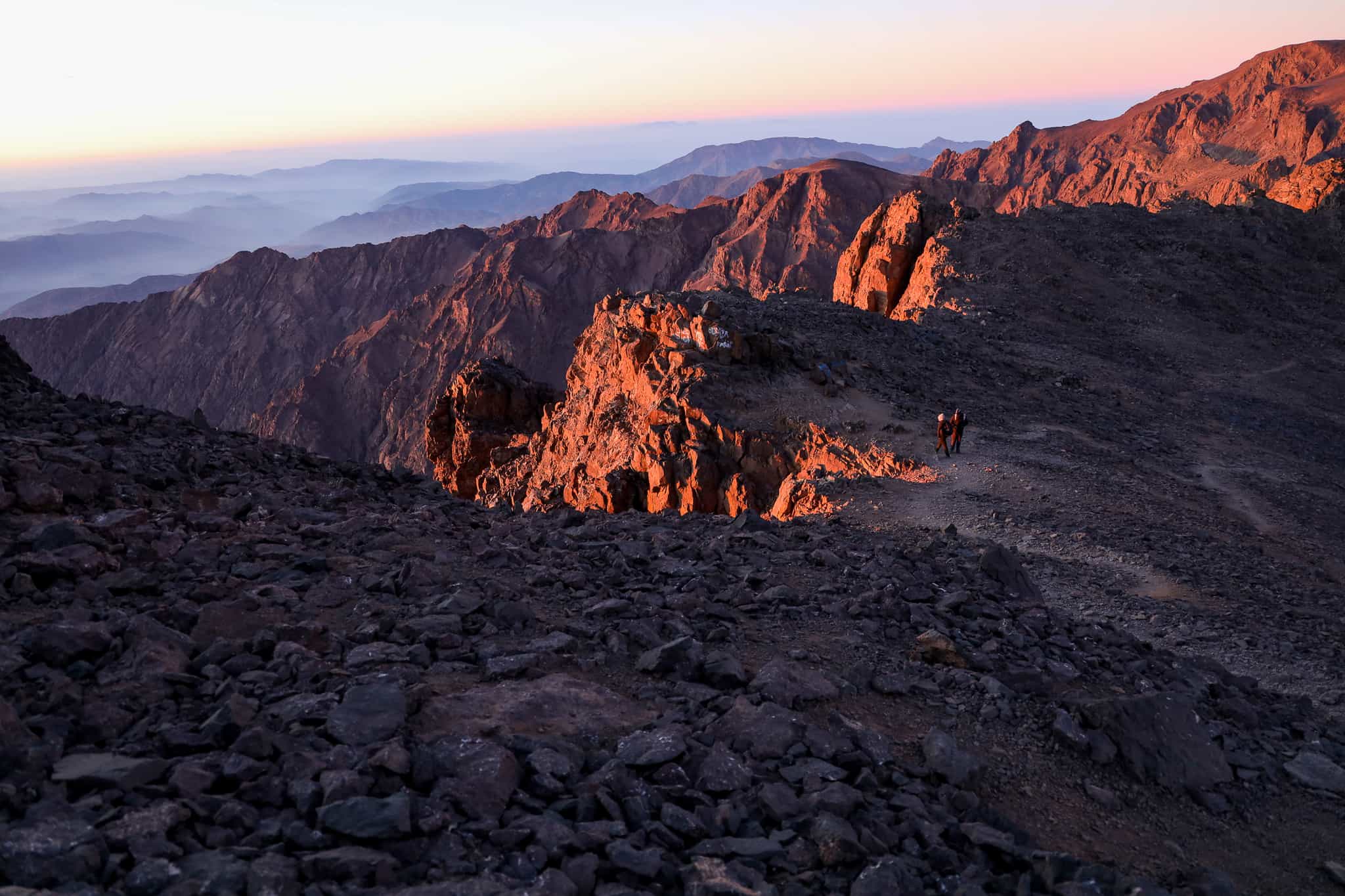

Need help finding flights?
From logistics and how to get there, to fitness, group dynamic and trip difficulty, Rory and his team of friendly experts are on hand to help.
We've got your back
Guaranteed to run
All Much Better Adventures trips are now guaranteed to run. Once you’ve booked your spot you can immediately make your travel arrangements, no uncertainty, no hanging about (excludes 'request to book' departures). Full details
Flexible payments
Secure your spot with the minimum deposit and pay off the remaining balance in as many instalments as you like, with no interest or fees. Full details
Happiness Guarantee
We’re so confident you’ll have an amazing time we’ll put our money on it. Full details
Full financial protection
To give you complete peace of mind Much Better Adventures is backed by ABTOT, ABTA and ATOL memberships. Full details
Tried & Trusted
Much Better Adventures is rated ‘Excellent’ on Trustpilot with over 1000 verified trip reviews averaging 4.8/5.
Connect before you go
You'll be invited to join a WhatsApp group to get to know each other before your big adventure together. Full details
DEPARTURE DATES
Sunday 17th August 2025
to Sunday 24th August 2025
Last Minute - Next 3 spots available at 10% off





